Student Blog Collection
My first 50 Days at the University of Warwick

It’s indeed hard to comprehend that it’s barely been two months since my study at Warwick began as several events and activities have taken place. My experience here started with the fresher’s week. The university was vibrant and full of enthusiastic students, the piazza was packed with food stalls and student clubs, the SU had events planned every day and we had campus tours to explore this huge place. It was followed by induction week which was organised by WMG. This was a great kickstart to my course, MSc in Supply Chain and Logistics Management because it provided an overview of all the abundant opportunities we have in store. I signed up for all the career events where I received quality information from various experienced individuals and met numerous like-minded people.
From the succeeding week, I attended my course modules back-to-back. It sure is intense but it’s interesting to learn different topics and perspectives. It’s surprising and motivating to realise how far I can continually push to better my skills and intellect. Our modules run from 9-6 pm for one week and each module is structured differently according to the tutor. I like that differentiating factor as each tutor is skilled in the field of their interest and draws life and industrial experiences constantly during lectures. With such long hours, I am slowly developing the skills to concentrate efficiently, participate and communicate resourcefully in group activities.
Currently, in Coventry, it’s getting colder and darker by the day thus managing to reach at 9 am and to complete most of the work by noon is an effortful new experience. It does feel overwhelming to manage attending modules and career events, selecting projects and supervisors, starting assignments while also enjoying this time at Warwick but I believe this is a one-time experience worth experiencing. Although it’s hybrid learning, the classes are structured in a beneficial way to limit the number of students attending while providing the full classroom learning experience. The resources available are copious from libraries, study spaces, modern classrooms, student experience activities to events at university. Especially, this beautiful campus is such a treat to my eyes during tea breaks and walks as the nature and trees ease your mind and provide clarity.
Amidst all this exploration at university, I recently submitted my first post-module assignment and that’s my first accomplishment here. I believe counting little victories along the way will keep us motivated to stay on track. I have already learnt so much and can’t wait to look back at the end of next year and realise how far I have grown as a person.

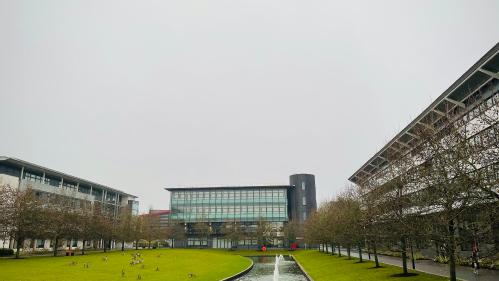
Janani Alagarsamy
MSc in Supply Chain and Logistics Management

Industrial Visit to Morgan Motors
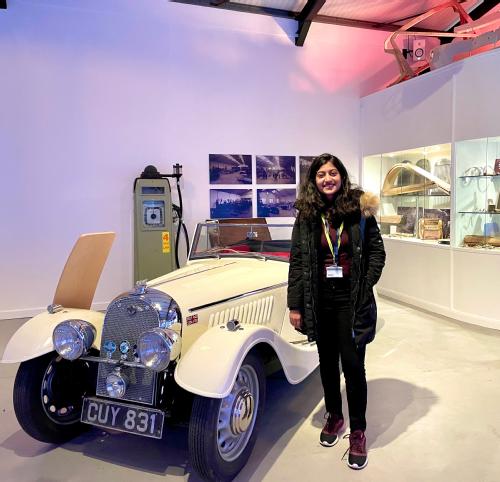
On the 11th of November, we hopped on the university bus to head to Morgan Motor Company in Malvern, Worcestershire. We reached this beautiful town and found the company below the foot of the hills. The employees are predominantly locals who also have a great bond through generations of working with the company.
We were welcomed with a short video about the history of this family-owned car manufacturing company founded in 1910. The cars are purely handmade and observed the entire process of how these cars are being made from scratch.
Andy Millward guided us through the doors of the assembly workshop followed by wood, chassis, sheet metal, paint, trim shops, and the pre-delivery inspection area. We witnessed the testing bay, the cut out of woods, and how they sew the leather and assemble them all by hand. The unique factor of the car was the use of wood. Here, the timber used is sustainably grown and assembled using three main pieces of light timber for the frame structure from which the exterior aluminium body panels and interior leatherwork are attached. The Speedster, Plus four, Plus six, and the unique three-wheeler are vintage car models and it’s still astonishing to see the finished product which was all hand made.
The workers are highly skilled in this age-old technique of craftsmanship, and it was enthusing to see how they use these techniques to perfect the car. We found that an employee is assigned to be responsible for each car until every part of the car is individually painted and assembled. Manufacturing a Morgan car takes 150 hours and as it is built to order with customisable options with a total lead time of 6 months. Every material used is of high quality and is delivered from all around the world from the best of suppliers. Though handmade, every part of the car is made sure that it’s perfect.
When we walked out the door, it was as if we stepped out of the 19th century. The factory ended with visiting the archive room and the showroom where we could piece all the information received. This visit was an enjoyable and knowledgeable experience. Observing every step of the production process and aligning it with the learning at Warwick made this visit highly valuable.

Janani Alagarsamy
MSc Supply Chain and Logistics Management
Thank you & final notes

Hi my lovelies,
I hope you are all doing well. :)
It has come to the end of my journey here at WMG and as a student marketer. I am grateful for the student marketing opportunity has given me for expressing my thoughts and sharing my experiences to being able to connect with prospective and new incoming students.
Thank you so much Warwick for allowing me to pursue my dreams and transform myself- I have had a great and unforgettable time here at Warwick. Words cannot express the depth and breadth of gratitude I have for the immensely valuable connections and friendships I have made here from the students to the staff who were admirable leaders, through to the invaluable immersion of relevant, intellectually stimulating and forward-looking content, to expanding my curiosity and horizons beyond of what I would have ever thought of, to the course exceeding my expectations, to the exceptional tutors, supervisors and lecturers who would become my coaches and mentors to becoming the best version of myself to the new cultures learnt, to the depth of self-awareness acquired… this one year has flown by so quick because of all the amazing memories, fun and laughter I had here. At moments when I didn’t think I could do it, that motivation and support I had throughout for continuing, I am eternally grateful for.
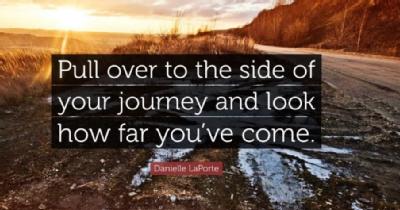
One of the biggest things I learnt over the course was to believe in myself, believe in our abilities and to trust the process. Everything will be ok in the end, and it will turn out alright. It is only when you look back at your progress in life that you notice the dots connecting. All the skills from critical thinking, innovative thinking to problem-solving, time-management, communication, and team-playing skills, to all the connections, all the developments and all the learnings are shaping you and making you the person you are.
Keep going, keep rising, keep shining, keep living, keep loving, keep smiling, keep laughing, and keep learning. Remember that everything is about perspective- you are what you put your mind to.
This has been a once in a lifetime experience that I am beyond grateful I got to experience it all. Thank you, Warwick, and everyone who was involved in making my year great.
Take risks, seek opportunities, make the most- be curious, ask questions, connect with different ages, different cultures, different experienced people- immerse yourself in the depths of boundless knowledge pools and rewarding plethora of diverse people at Warwick, don’t give up, dream, be optimistic trust the process...
I wish you all, all the very best success, prosperity, great health and love in your future endeavours. Keep shining your bright lights, go for what sparks a fire in you and remember “Be the change you wish to see in the world”.
Thank you for reading my blogs, and for now it is goodbye my lovely readers.
Sending you all lots of love and warmest wishes,
Lakshika Thuthipavananthan
MSc International Technology Management

My top 3 modules

Hi, my lovelies,
I hope you have been enjoying yourselves and doing well.
Now having finished my master’s in international technology management, I would like to say that each and every module helped shape me and improve me for the better, to opening my mind to new perspectives and insights that I would have never imagined of to some great AHA moments; I never got bored from the array of depth and breadth of intellectually stimulating topics at bay. Aside from my dissertation which was 50% of my degree, to break down the modules (the other 50% accumulatively) I completed; I was first given the opportunity to have my compulsory modules which where : Technology Management (15 credits), Systems Thinking and Systems Engineering (15 credits), International Joint Ventures (10 credits) , Managing Innovation and Change (15 credits) and Emerging Technologies for Business (15 credits). We were given the opportunity to take on optional modules too which I chose Leadership (10 credits) and Product Planning, Management and Control (10 credits). Each module was so different, unique wonderful, providing a one-of-a-kind immersive and enriching experience, with some much breadth of knowledge and content learnt throughout and meeting such a diverse array of people. I have truly loved every bit of my learning experience here. It has been tough to narrow down to my top 3 but after some thought I would like to share you my top favourite modules which included Leadership, Technology Management, and Systems Thinking and Systems Engineering for the following reasons:
Leadership:
- Helped me become self-aware and tap into my leadership abilities and highlight my unique abilities
- Helped understand how there are different leaders and followers and the strong interrelation
- Helped push me out of my comfort zone numerous times but working in very short and adapting scenarios with sometimes only an hour or so given to come up with a whole presentation. This was a truly rewarding experience and made me believe in myself.
- Some of my fears included public speaking yet this module helped me push my boundaries and speak more spontaneously and openly about my thoughts regarding topics and help take leadership in presenting topics.
- It allowed me to understand the true power of listening, communicating clearly, working together and developing one another through feedback, facilitating change and delegating tasks, mentoring, problem-solving and strategic decision-making whilst being a leader and follower simultaneously.
Technology Management
One of the main reasons I joined Warwick and did my MSc in International Technology Management was to learn more about the amazing and advancing world of technologies and how to manage and exploit technologies. I can honestly say I feel like I have learnt in one year what would normally take 3 years to learn- it was immersive, intensive, and so worth it. It truly felt like I stepped into a different world. This module was perfect for me- from learning key technologies shaping businesses and the world around us to learning numerous relevant tools to be able to exploit these technologies in real-life business settings to being able to have simulations where you take on the role of a technology expert or technology consultant to deal with real-life scenarios of the future of managing technologies; there was never a dull moment. Every neuron and cell in my body were dancing and buzzing with energy for the rewarding and continuously intriguing insights learnt throughout. To top this off, I was particularly excited and genuinely touched by the numerous guest lecturers from relevant large technology companies who came to share invaluable insights. I was left feeling inspired and motivated to truly make a positive difference with the power of the advancing technologies.
Systems Thinking and Systems Engineering
This was one of the most pivotal moments during my masters where everything just clicked. Talking about the micro, meso and macrosystem help consolidate my understanding of the varying systems around the world and the interconnectedness. It helped me understand the history, the present and the countless potential we have in this world if we look at everything from a systematic perspective and start to connect all the dots together. It truly takes joint efforts and my ability to develop design thinking in this module is something I feel I will take with me for life. I also utilised numerous excellent insights from this module for my final project dissertation which was a grounding perspective to come from.
I hope you enjoyed reading my blog. I would say make the most of all the opportunities you have. Go with a positive can-do attitude, truly engage and think of why you are doing what your doing and how it will benefit you. This journey is once in a life- immerse yourself.
Wishing you all the very best.
Sending lots of love and warm wishes,
Lakshika Thuthipavananthan
MSc International Technology Management

How I got a distinction



Hi everyone. I hope you are all doing well.
As I am writing this it has been a couple of month since I finished my studies, this symbolic picture is from the Pyrenees Mountains I took from Andorra and I have just gotten my final results. Much to my surprise, I graduated with a distinction and am so grateful for the beautiful lifelong memories and amazing personal development along the way. It is safe to say it has been one of the most rewarding and transformational years of my life. I thought I would share with you all some of the key tips that that helped me during my studies to attaining a distinction:
Time management
Create to do lists and schedule sessions for work along with other things -managing time is key to mastering your masters. I usually did leave most of the work towards the end, but I prefer working under pressure which is where I am able to work most efficiently and effectively. Remember everyone has a different learning and working style, make sure you figure out what works best for you early on and stay consistent. Keep going.
Networking and always ask questions
Be critical and think outside the box. When reading relevant work be critical, compare with other authors on similar points and see if there any gaps in knowledge that could be addressed with primary data. When I was writing I made sure to look at things that hadn’t been explored around, or things that really piqued my curiosity. I made sure to tailor work towards what I enjoyed so I could explore it more in detail. This is particularly important for the final project which makes up a big chunk of your masters and could be used in the future too.
Attending classes and truly engaging with the content.
I would say attending all the classes and seminar work is important. Beyond this, truly listening and engaging with the content and the class will ensure not only you have understood the tasks but allow you to investigate elements that may have peaked your curiosity during addition or pre-class readings for example. Make sure to ask questions, talk in class- remember there is no dumb or wrong answer. If you have any concerns or questions arise, just ask. It has been such an important part of my learning experience at Warwick. I think something I really enjoyed on the side was preparing some questions for guest speakers after having done some relevant research before the classes commenced. I made sure to target most of the questions relevant to my dissertation directly and indirectly which all proved to be helpful.
Mastering group work
Working in group is a skill and a testamenet to your leadership and group working skills. Sure not every group may be easy to work with. One key tip is that the strength of the group is not based on their intelligence as to say but more on how effectively you work together, how well you listen to another, feed on onto one another, delegate tasks effectively, your feedback with one another and how effectively you maintain communication with one another. During group works, the work usually accounts for a smaller percentage than a post module assignment but it can drastically change your final grade. I would say embrace the diversity in group, and though it may not always be easy, you learn so much about yourself and working in a truly international environment. It has been one of the pivotal points in my time here.
Choose topics that you like.
Some PMA’s we have the ability to choose questions to focus our essays on and I always made sure to choose topics that genuinely interested me, and I had a passion for. I was curious and excited at every PMA opportunity that arose. I would say choose something that sounds intriguing for you otherwise it may make it more difficult to complete. Also the dissertation which will be one the most important works in the masters journey. If it wasn’t for my project supervisor, I would not have chosen a topic that pushed my boundaries and comfort zone but one that I had been dreaming of exploring since childhood. I am grateful for the supervisor for letting me do a topic that I have been so fond of for a long time- it was a topic that I thoroughly enjoyed exploring for the year. I would say this was one of the main reasons for me doing well and being motivated throughout my master’s journey. Choose something you love, are curious about and think could potentially impact you positively also in the future.
Study buddies
Right from the beginning, something that really helped me throughout the year, particularly having been online, was having a study buddy. This made me do work consistently, help one another if any concerns arise and keep each other motivated and engaged with the contents. One of the biggest takeaways for me here was less procrastination with a study buddy. This depends on the people but if you are both committed, I think this is a great idea. Of course, I did enjoy also studying independently as that also had its benefits, but I found balancing with study buddies brought out a different perspective and experience when completing my work.
Project highlights
Be conscious of the different weightings of modules and dissertation project. For me I made sure to not give up and let one obstacle let me down. For the year 2020/21 the project dissertation had a 50% weighting of the overall grade, so I made sure to put a lot of my time and efforts in creating a piece I am proud. Same went for the other modules, but I would say consider the amount of effort and time that goes with each weighting of the constituents of your degree.
Don’t give up- don’t let one knockdown deter you from trying again. There is a saying fall 7 stand 8. This was my motto throughout. Even if sometimes I didn’t perform well, I made sure to evaluate myself, understand where I went wrong and continue to improve myself and do the best I can at the time. At the end you will prevail. The summit is what drives us but it is the climb within that matters. Remember the best view comes after the hardest mountain. Go for what lights you up, step outside of your comfort zone, stay determined and keep connected. You will do well.
You’ve got this.
Sending lots of love and warm wishes,
Lakshika Thuthipavananthan
MSc International Technology Management



Tips for figuring out what to do after studies

Hi, my lovelies. I hope you are all doing well and staying healthy.
Time flies. This one year has flown by the quickest it ever has in my life and with so much breadth covered in the year from university work to outside of university work sometimes it can be beyond our scope to figure out what to do after studies. For me personally, I am more of a go with the flow kind of person- very spontaneous to say the least. As the end of my masters was approaching, I had decided to take some break by traveling around different countries and exploring more of the beautiful world around. On the side I also did some volunteering and helping my parent’s business out. Some of the most important things I would say to help you on your journey to figure out what to do after studies are as follows:
Talk with connections from tutors to fellow classmates to friends to guest speakers to career service to lecturers there is a abundance in diversity of knowledge and information that different people can offer so I would say make the most of the fellow connections; they even point you to a more suitable connection to discuss anything. If something intrigues you or if you have a passion or curiosity don’t be afraid to investigate and find out more about it. There is a reason behind your passions and desires in life. One decision can literally change your life, so I would say make sure to network, find out more about the world and opportunities surrounding. I know that most of the graduate programmes have deadlines between October and December. Don’t worry if you have missed these deadlines there’s thousands, I mean thousands and thousands of opportunities around which I am sure you will find suitable eventually. I think key here is go where you are curious about, where you want to develop yourself and where you see purpose and passion in. It may be easier said than done but doing several things like journaling for self-awareness and talking with tutors, family and friends may help.
Reflect and journal. Self-awareness has been one of the biggest game-changer during my journey through masters through to life after masters. From being able to clear my mind, to understanding certain patterns and behaviours and thus improving future actions, interactions, and behaviours, the more I started journaling and tapping into key traits the more I was able to direct myself towards my true self and finding my purpose. I would like to thank everyone from the leadership module who really emphasised the importance of this. One key tool that I really enjoyed, and think would be a great asset into living a more fulfilled life is the Japanese model called Ikigai as shown below tapping into different motivations.
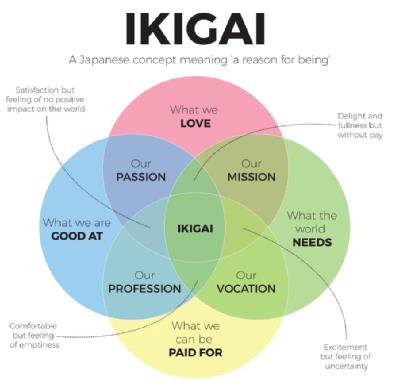
As I am writing now, it has been a couple of months since I have graduated and I have chosen this time to do some volunteering and travel around Europe. It has been such a great rewarding and enjoyable time where I have been able to see more of the world around me, explore new cultures, foods and people whilst making a positive impact on others.
There are plenty of areas to explore such from going straight into full-time employment whether related or unrelated to what you intend on doing, to travelling around the world to volunteering to completing traineeships, internships or even further education to doing other masters or a PHD. The key is focusing on you, it does not matter what others are doing, you have to listen to your heart and choose a path that feels right, and you feel passionate or determined to explore.
Go for what sparks a fire in you, your life has purpose, your voice matters, your dreams count- you are born create a positive impact on this world.
Wishing you all the very best.
Thank you very much for reading.
Warm wishes and lots of love,
Lakshika
MSc International Technology Management

Warwick on Autumn
Hi Everyone,
I have lived in Coventry for one year, and my favourite season is Autumn. Warwick looks very magnificent in Autumn, more beautiful than Spring. I went to Coventry from London to capture this impressive scenery that I want to memorise when I am back in Indonesia. I have so many sweet and happy memories here. My postgraduate life will end next month; I hope to finish my dissertation on time and continue my career journey. I think this will be my last blog from the University of Warwick as a student blogger. I hope you are enjoying my blog and helps you explore the UK and study at the University of Warwick. Apologise if I said something that hurt or the information was not accurate. If you want to continue reading my story, I will feel honour. For another story about my journey, you can see it on my Instagram account @junepaski
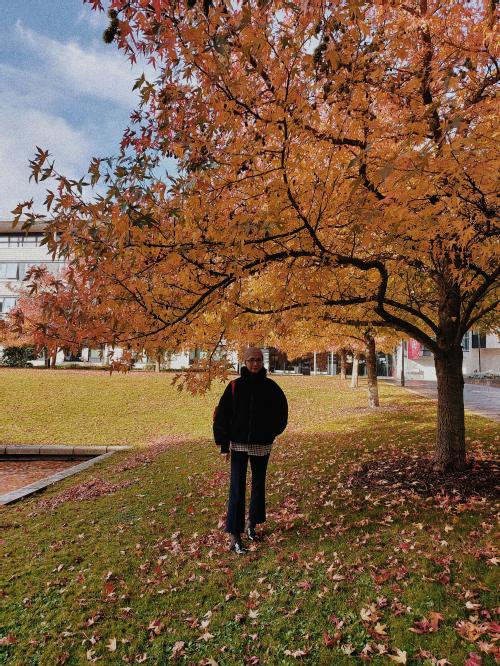
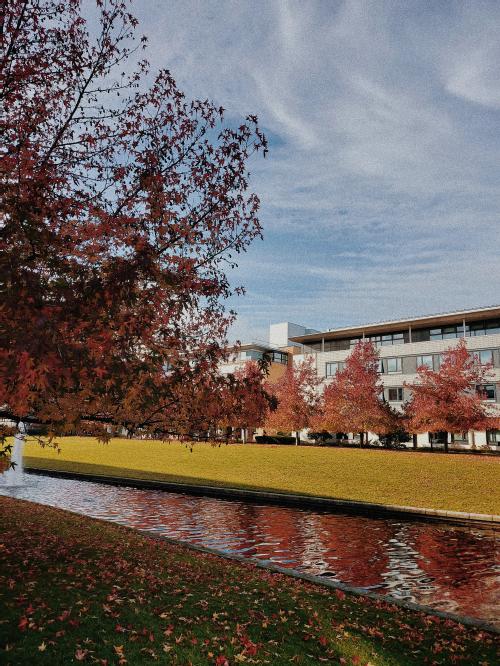
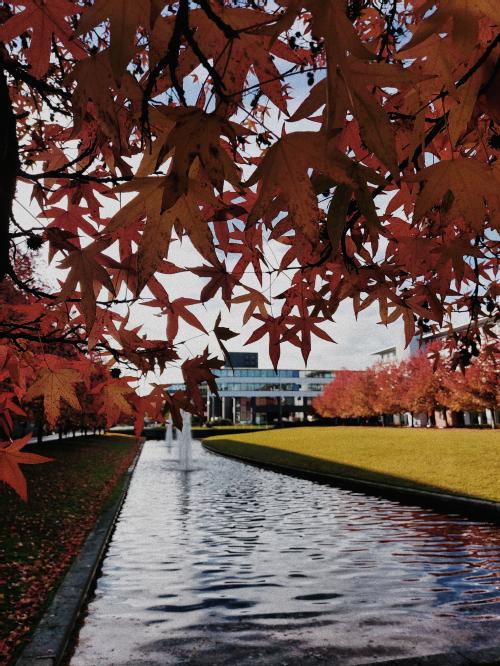
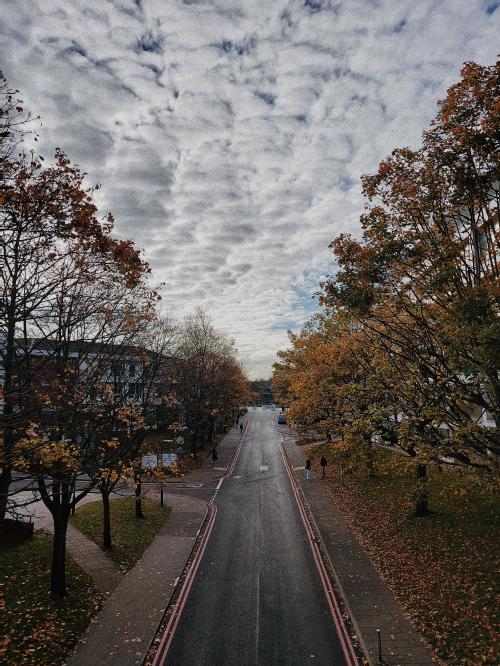

Best wishes,
June, IAE
Gaia at Coventry Cathedral
Hi Everyone,
I was so lucky to see this beautiful Earth artwork by Luke Jerram at Coventry Cathedral. I did not plan to see this; I accidentally came across Coventry Cathedral after buying something from Wilko. This seven-metre planet earth globe was installed in a cathedral ruin as part of a peace festival and was recently seen at the COP26 meeting in Glasgow. If you want to see this exhibition, I suggest seeing it at night because the globe will be illuminated. When I saw this globe and heard the visual effect, I felt like I saw it from space. Some NASA astronauts said when you see the earth from the ISS station, you will realise how beautiful it is and that there are no other planets as beautiful as earth. There is no planet like earth. So, we need to renew our responsibility for taking care of our beautiful world because there is no planet B or C for us. we only have one planet, which is planet earth .
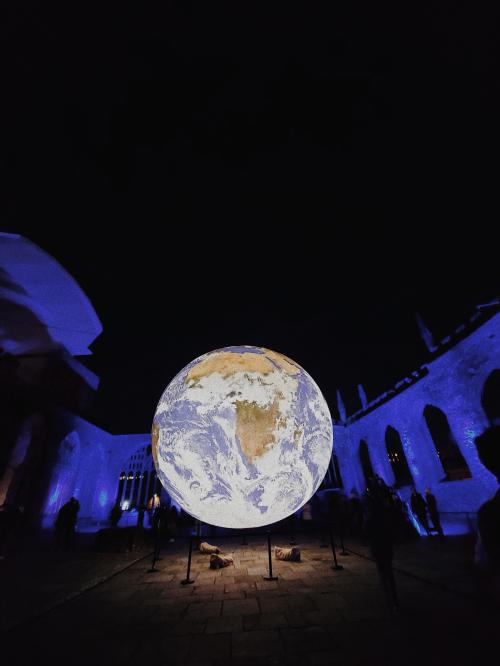



Best wishes,
June, IAE
Job searching tips
Around the end of the study, many students start to be worried about finding a job that fulfils their career goals. The job market is very competitive and having a master degree from WMG will be an asset but you need to exert some smart effort to get the jobs of your dreams. I collected the following tips from my own experience and some other friends who studied with me.
1. Start early
You may find graduation is far as you just started your master's study and job search doesn't seem urgent. However, the earlier you start, the better results you will get. Some companies especially the big ones have a very long hiring process. Therefore, they opened their vacancies many months earlier and their hiring process takes many stages in a long time.
2. Prepare your CV
Your CV is very important as it tells all about your education and experience. Most hiring experts recommend that you customize your CV for each job and I personally recommend that. For example, if you are applying for a job that requires some technical experience, you will need to make sure that your CV has more details about your technical experience. If you are applying for a managerial position, you will need to show the highlight the managerial experiences that you have. It is very tiring but if you start early and apply for 3 or 4 jobs a week you will end up with many jobs applications by the end of your study.
3. Seek expert advice
Through My advantage portal, you can book a session with a career advisor that can help you sort of your career goals and guide you on the best way to approach jobs. Through the portal also you can have an expert revising your CV and jobs applications. Again, the key here is to apply early so you can have enough time to get your job application revised before submitting it.
4. Networking
Personally, most of the jobs and the interviews that I had in my career was through my network. Investing some time and effort to build your professional network always pays off. You can start by building a nice profile on Linkedin, joining online professional groups in your field and attending industry events. The best advice I got regarding networking is to think of what you can offer to the ones you are approaching the same amount you think about how can you benefit from them. Your network can help you find a job by recommendations or even headhunting when they know you are the best fit for an opportunity they have.
Wish you all the best in your job search journey!
Work opportunities while studying (Unitemps)
As a WMG student, there are some weeks in which you will find yourself less busy than other modules and PMAs weeks. You can make use of those weeks or even of the very few hours you have to earn some money, gain some work experience, and familiarize yourself with the market here. There is a platform powered by the University that can help you find such temporary small jobs. The platform is called Unitemps. You can access it through this link: unitemps.com. Unitemps is a university-owned recruitment service that helps thousands of people every year to find work. Through their national network, they provide exciting job opportunities within universities and businesses across the UK. You will find many student-friendly opportunities. Using the job search you can narrow down your search to temporary opportunities on campus and nearby. You will find many jobs, especially on campus in different departments varying between research jobs, marketing, administration, etc.
Given that many applicants use the platform, you need to raise your probability of getting hired using these tips:
- Update your CV with all your recent information and customize it according to the job you apply for
- Avoid using a generic cover letter and invest some time customizing your cover letter for each job, it shows how much you are interested
- That's an extra tip that I believe helps: Find out more about the employer or the department that posted the job and try to connect professionally with them through Linkedin. You can send a nice message asking for advice or the best way to prepare yourself for the job. This way you got their attention and advice, this will increase your chances greatly.
As an international student, this little experience of temporary jobs will help you feel more comfortable and fit in the UK market.
The Entrepreneurial ecosystem in the University
As an Innovation and Entrepreneurship student, the academic content is not only what I was looking for when I chose this course. I was more interested in how this knowledge is used practically by the university and how the university is growing a strong ecosystem for entrepreneurs. I found that Warwick has a very growing entrepreneurial ecosystem that consists of different departments and programs. If you are an IAE student or any student who is interested in entrepreneurship, you will need to know about those departments and programs.
is a university department committed to improving student education through entrepreneurship, innovation and creativity. Warwick enterprise runs different programs that you can easily navigate through their webpage. Through their webpage, you can have access to educational content (courses and digital resources). In addition, you can have access to funding opportunities that can help you execute your ideas or build your prototype. Warwick Enterprise also offers an accelerator program for graduate students which is a great opportunity to secure funding and full-year support for your startup. Warwick Enterprise runs many workshops and activities all over the year which I recommend following and attending.
2. Warwick Innovation District
Powered by the University of Warwick, and open to all, the Warwick Innovation District is a large, open innovation ecosystem that stretches from the University Hospital Coventry & Warwickshire, through Leamington to Wellesbourne. The District brings together academics, businesses, founders, and investors, to start, scale and pivot businesses while helping students gain the opportunity to experiment with creative and critical thinking. The district runs a wide range of activities and programs that you can find through its website. The most interesting program for me is The Deeptech innovation centre which runs the Deeptech incubator. The incubator is targeting entrepreneurs with ideas in the technology field and it provides them with space, mentorship, training and networking opportunities.
With the focus on Manufacturing startups in different stages, the accelerator offers a wide range of unique services that can greatly boost the performance of the startup and accelerate its growth. The services include analysis and positioning, product development support, growth hacking support, and a suite of tech products. You can learn more about their services and activities through their webpage. You can also find details about their cohort companies so you can get a flavour of what kind of startups can benefit from this unique accelerator.
The Ecosystem extends beyond these programs. However, these are the most interesting for me as a student and as an entrepreneur. Visit the web pages of these programs and sign up for their newsletter so you get a chance to keep an eye on all available opportunities.
Is learning experience directly proportional to teaching quality?
I am a firm believer of teaching holds the scope of learning in itself. The one who teaches learn at the same time and it is supported by Robert Heinlein famous quote: “When one teaches, two learn”. The student’s learning experience is contributed majorly by the teaching quality. You must have heard that the University of Warwick has been named the University of the Year for Teaching Quality and as runner-up for University of the Year by the Sunday Times Good University Guide 2022. Further reading is available on the following website.
I would like to share my learning experience and we get to eventually deduce the teaching quality of the University of Warwick.
Virtual sessions/modules:
All the modules except for the last one was virtually scheduled. But it always felt so close to the real world. The preparation and planning for these sessions were commendable. The timetable was shared with the students so that we could plan our week accordingly. With the use of the Microsoft (MS) Team, all the students collaborated on their ideas during case studies and other group activities. Kudos to the university for choosing MS Team and providing sessions on how to use MS Teams.
Personal attention:
Alike pre-covid, the personal tutors still met their mentees on MS Teams call (virtually). But the attention and guidance provided by them remained intact. Moreover, discussing the PMA feedback one on one sessions with the module leader was an easy option during this tough time of Covid-19.
Technical remote learning:
Modules involving technical labs were crafted bearing in mind remote learning. Never did I get this feeling of being lost as the module leader would resolve the issue with the help of screen share. Technology has genuinely bridged the gap between humans sitting miles apart. But the patience and effort of the teaching staff of WMG should be appreciated.
IT assistance:
During the work from home modus operandi, IT assistance was always provided by just calling the university’s IT service desk. I was stuck about three-four times and each time my ticket was resolved within a couple of hours. All this put together, helped me achieve my PMA deadline.
My simple mantra in life is by Aristotle: “Those who know, do. Those that understand, teach.”. I am sure, after this blog post you, all would understand the teaching standards and quality delivered by WMG, University of Warwick!
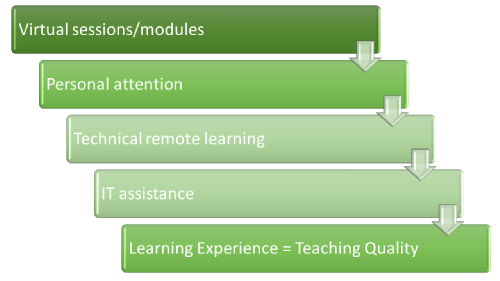
Tips and Tricks to achieve distinction…
When at the University of Warwick, you might hear the following statement often: “A poorly worded report will hide excellent content”. Personally, time and again, I heard the above statement from my supervisor and personal tutor. Module after module, I started abiding by this statement which helped me gain distinction. Here are a few tips and tricks to secure distinction in your PMA’s and Dissertation. I hope this works out for you, and you can walk out of the University of Warwick with a Distinction!
- Ensure that your PMA/Dissertation has a front-page comprising a title, your student number, module and lecturer’s name.
- Imbibe the practice of including an executive summary giving a gest of the entire PMA/Dissertation.
- The table of contents and list of figures and tables should display correct page numbers and hyperlink correctly.
- An introduction section acts as a map to the rest of the document. I categorised the introduction into three sub-sections: Purpose of the document (including in-scope and out-of-scope), Target audience, and Document structure.
- A logical and well-defined document structure with headings and subheadings.
- Clearly labelled and well-presented diagrams and other graphics are discussed in the text. Always recreate or adapt the diagrams from your reference and do not copy-paste the exact figure. I used to create figures with the help of smart art in Microsoft PowerPoint Presentation and save them as an image.
- Evidence of systematic and clear thinking, indicative of good planning and organisation. A critical style of writing which compares and contrasts the main theories, concepts and arguments with conclusions that are based on the evidence presented.
- Include a Conclusion section at the end to summarise your discussion and preventive measures or mitigation actions.
- Write a short sentence that is not more than twenty words.
- Your document should be proofread, and grammar checked. Ensure that you follow British English spellings.
- Reference should be Harvard or the one required by your department. Referencing and citation accuracy is the key to good documentation.
- Adhere to the document submission timeline, word count and the number of pages (only if mentioned in the PMA question). Also, follow the PMA question and do not include Appendix if explicitly stated.
- Read the PMA question carefully and submit the document in the expected format. Sometimes, you need to submit more than one document and understand the requirement of the other documents, for instance, format/type.

Overview of Cyber Security and Management Modules – Part Two
As promised in my last blog post (Overview of Cyber Security and Management Modules – Part One), here is the continuation of the modules overview as part of the Cyber Security and Management MSc course.
5. Enterprise Cyber Security
Module type: Theoretical.
Topics and concepts covered: System Context, Requirement and Constraints, Architecture Concepts, Component and Data Flows, Operational Model, Architecture Pattern, Detect and Respond, Secure Engineering and Assurance, Emerging Security Technology.
Learning outcomes: Persuasively articulate cyber security imperatives to key decision-makers in an organisation. Critically evaluate the cyber security posture of an organisation. Critically analyse “identity” in the context of the cyber security of an organisation's mission, considering both those inside and those outside the organisation. Critically analyse the cyber security consequences of the increasing connectedness of endpoint devices and control systems (such as sensors, actuators, buildings, and transportation) to an organisation's mission.
6. Financial Analysis & Control Systems
Module Type: Theoretical (Analytical).
Topics and concepts covered: Financial Costing, Budgets, Variance, Investment Appraisal, Ratio Analysis, Published Statements.
Learning outcomes: Interpret the basic business accounting statements. Differentiate between the different methods of measuring financial performance within a business. Critically analyse financial data to generate further information. Provide a critical interpretation of the relationship between the operational performance of a business and the financial measures of the business.
7. Industrial Espionage & Counterfeiting
Module type: Theoretical.
Topics and concepts covered: Espionage, Counterfeiting, Cyber Threat Actors (CTA), Information Intelligence and Analysis, Industrial Cyber Risks and its Management, Industrial Countermeasures, Cyber Incident Response.
Learning outcomes: Analyse exposure to industrial espionage. Synthesise appropriate mitigation to industrial espionage exposure. Critically analyse exposure in products and services to counterfeiting. Synthesise appropriate countermeasures to counterfeiting exposure in products and services.
8. Information Risk Management & Governance
Module type: Theoretical.
Topics and concepts covered: Information Risk Management, Risk Assessment, International Standards and Information Security Guidance, Risk Management Strategy, Operational Management, Cyber Risk Assessment, Incident Response Management, Cyber Risk Convergence, Risk Management and Governance Best Practices.
Learning outcomes: Compare and contrast various approaches to information risk management and select the most appropriate for a given scenario. Compare and contrast various approaches to information risk governance and select the most appropriate for a given scenario. Develop appropriate approaches to business continuity and resilience.
9. Security Architecture & Network Defence
Module type: Technical and Theoretical.
Topics and concepts covered: Scanning (Nmap and Ports), Access Control (Linux and Windows), Firewalls, SQL Injection, Cross-Site Scripting (XSS), Authentication, Directory Traversal / Command Injection.
Skillset gained: Burpe Suite, Kali Linux Virtual Machine, NMap, Netcat, Burp Suite, Gobuster, Google Authenticator, and online tools - Z85 Decoder and Encoder, HEX to ASCII code converter, ASCII to Hex code converter, and Crackstation.
Learning outcomes: Use terminology appropriately to describe current research in the cyber security domain. Analyse a network configuration (using tools as appropriate) to identify its security posture. Recommend suitable adjustments in the configuration of network security devices to achieve the desired security posture. Perform web penetration testing. Perform system penetration testing. Create firewall rules.
All the very best for your future CSM modules!
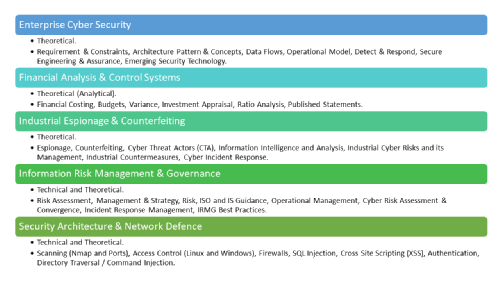
Overview of Cyber Security and Management Modules – Part One
As quoted by B.B. King, “The beautiful thing about learning is nobody can take it away from you”. I have gained and enhanced my knowledge, and no one can steal it away from me. However, I like to share my experience and learning outcomes of each of my modules. The best channel to share is by writing this blog post.
1. Cryptosystems & Data Protection
Module type: Technical and Theoretical.
Topics and concepts covered: Encryption, Hashing and Message Authentication Codes, Digital Signature, Digital Certificates, SSL, Kerberos, IPSEC.
Skillset gained: CrypTool, Identity Access Management (IAM/IDAM), COTS (Commercial Off-The-Shell) IAM systems.
Learning outcomes: Critically analyse the cryptographic needs of a particular scenario. Critically evaluate cryptographic solutions to an information assurance problem.
2. Cyber Intelligence & Operations
Module type: Theoretical.
Topics and concepts covered: Cyber Intelligence, MITRE ATT&CK, Attack Modelling Techniques, Red Teaming, Blue Teaming, Roles and Responsibilities of a SOC.
Learning outcomes: Reason about the threats and hazards to which a cyber system may be exposed with a view to producing actionable intelligence to reduce negative consequences. Evaluate the situational awareness of an organisation to the key indicators of its cyber well-being.
3. Cyber Security for Virtualisation Systems
Module type: Technical and Theoretical.
Topics and concepts covered: Cyber Virtualisation, Docker, Capabilities, Namespaces, Security Policy and Runtime Hardening – Security-Enhanced Linux (SELinux), Secure Computing (SecComp) and File System (Read-Only), Image Hardening, Registry and image distribution.
Skillset gained: Docker, Centos Virtual Machine, Sysdig, SELinux, SecComp, Image Hardening.
Learning outcomes: Analyse the security relationships within a virtualised ecosystem. Evaluate the extent to which a virtualised container ecosystem satisfies its desired security properties. Configure a virtualised container ecosystem to achieve the desired security properties from the perspective of both the container and the underlying host.
4. Digital Forensics
Module type: Technical and Theoretical.
Topics and concepts covered: Principles of Digital Forensics, Case Investigation, Management, Triage, and Forensics Acquisition, Examining and Reporting, File System, Metadata.
Skillset gained: Autopsy, FTK Imager, Exiftool, Python, Microsoft Excel, GPXSee.
Learning outcomes: Investigate digital artefacts against a realistic brief, preserving, analysing, and interpreting the evidence. Apply scientific techniques and use scientific terminology appropriately in the context of digital forensic analysis.
Please do read my next blog (Overview of Cyber Security and Management Modules – Part Two) to understand the rest of the modules covered in the Cyber Security and Management MSc course.
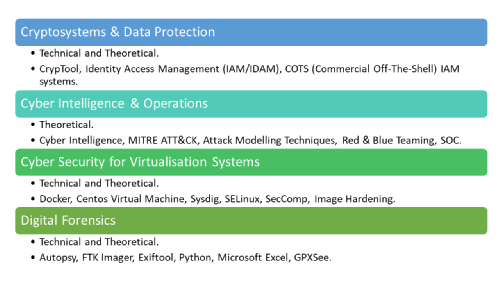
Exploring Kew Gardens
Hey Everyone,
In this post, I will explore another part of Kew Gardens that was truly amazing and beautiful. I love nature, such as forests and gardens, and sometimes I miss my home country. Suppose I miss my home with its humid and hot tropic weather. I usually visit botanical gardens, and Kew Gardens has a huge collection of plants and flowers worldwide. My favourite building at Kew Gardens is Pump House because the weather and plant are exactly like a tropical country. My friend felt like she was walking in her house backyard in East Indonesia. I felt like I was walking in my mom's village when I saw bananas and mango trees. When you go outside the house, you will back to the UK weather, and the smell of roses from the rose's trees will welcome you. If you want to go here, please come very early because there are so many spots that you need to visit, and the place is so large, and they also close at 5 pm.
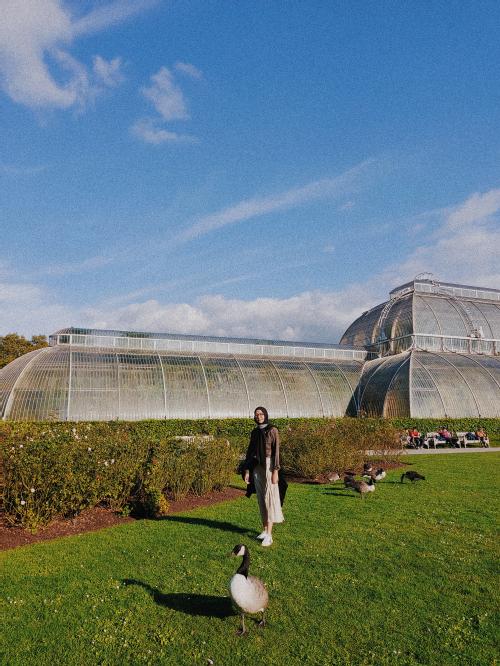


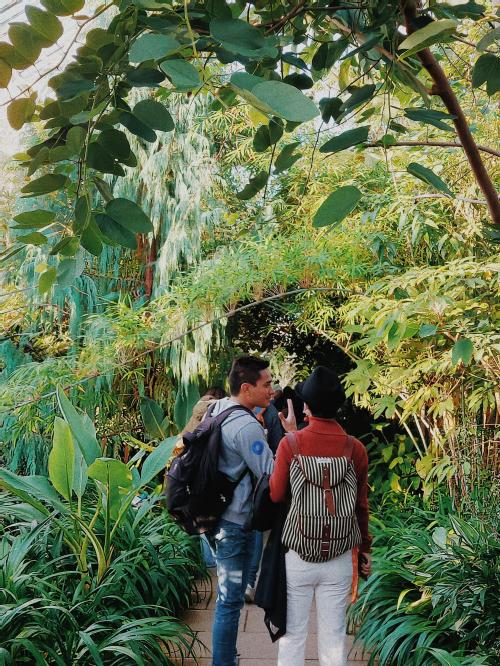
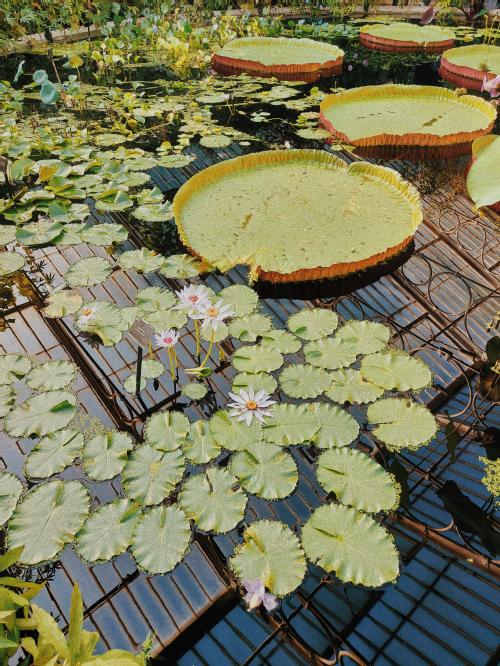
Best wishes,
June, IAE
Dissertation 101 (Helpful tools)
I wrote two blog posts about choosing your research topic and supervisor and how to manage your time for the dissertation. In this post, I will tell you about some helpful tools that you can use which will make your life much easier when you write your dissertation. The tools mentioned here are for qualitative research which depends on interviews for data collection:
Referencing (EndNote)
Some students tend to write first and do the referencing at the end. That was my approach when I started writing my PMAs.However, it was very time consuming and not effective as you may lose some of your references links or put misplace references. Another approach I used was using the Microsoft referencing tool. well, it made it easier. However, I had to write manually each detail of the reference which again can lead to human errors such as typos. The best solution which I followed later in the rest of the PMAs and the dissertation was using EndNote. EndNote is a software that you can download through your student account and it enables you from having your own references library. All you need to do is download it and connect with your MSword. Most of the research websites will allow you to download the reference as an EndNote file you just download it and voila! your reference is ready without any typing. Now you can use it right away. My only advice here, it to update the references while you are writing and don't wait to put them at the end of your dissertation you will save so much time this way.
Data collection (MS teams)
The easiest way to hold your interviews is to use MS teams and record your meetings. Your interviews records will directly be saved on your one drive account which is the safest place to save your data. Make sure you put a proper name for your recording so that you can remember who was this interview with. MS teams can also generate transcripts for your interviews. However, from my experience, the transcripts were not very reliable thats why I used another tool for it (Otter.ai)
Data Analysis (Otter.ai)
Otter is an online tool where you can upload your recordings on and it generates high-quality transcripts. I used Otter and it was very easy and it allows you to fix the transcript while you listen to it in case there are any mistakes. However, you still need to read through all your transcript to make sure that you anonymized any interviewee identifier to keep the privacy of your data. In addition, after finishing using Otter make sure to delete all the data from there.
Data Analysis (NVivo)
After transcribing your data you will need to start analyzing it. NVivo is the best tool to assess you with that and you will have free access to it through your university account. All you need is to upload your transcripts and start reading through them and put your findings into codes following your thematic analysis.
It took me some time to start using those amazing tools and they really saved me so much effort and time. So, don't waste time without knowing the tools that can boost your productivity.
Japan Festival at Kew Gardens
Hello Everyone,
this weekend I went to Kew Gardens to see Japan Festival. The festival featured the beautiful artistic installation 'One Thousand Springs' by Japanese artist Chiharu Shiota. The installation constructs 5,000 haikus suspended in a web of red threads in the centre of Temperate House. I tried to read the haikus, but it wasn't easy 😅. Anyway, haiku is a Japanese poetry that usually describes nature. For the ticket, they have a special discount ticket for students, which is £9.75. So don't forget to bring your Student ID. I suggest you buy the map because it is very large and it's easy to get lost. Kew Gardens is around 2 hours by public transportation from the University of Warwick, take a train from Coventry train station to London Euston for 59 minutes (Avanti west train), then 56 minutes from Euston to Kew Gardens with London tube and bus.
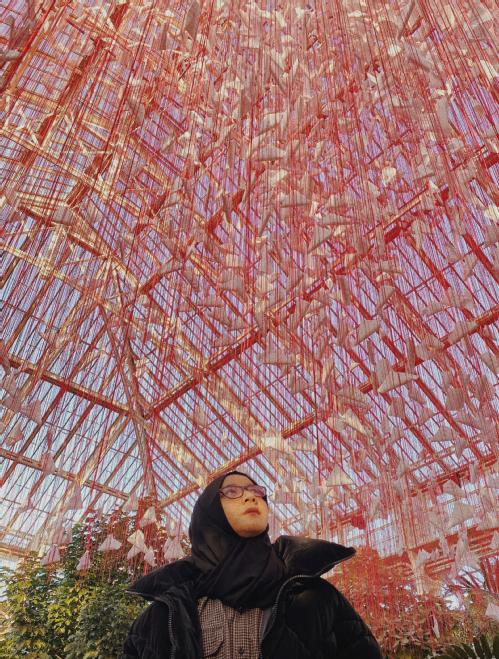
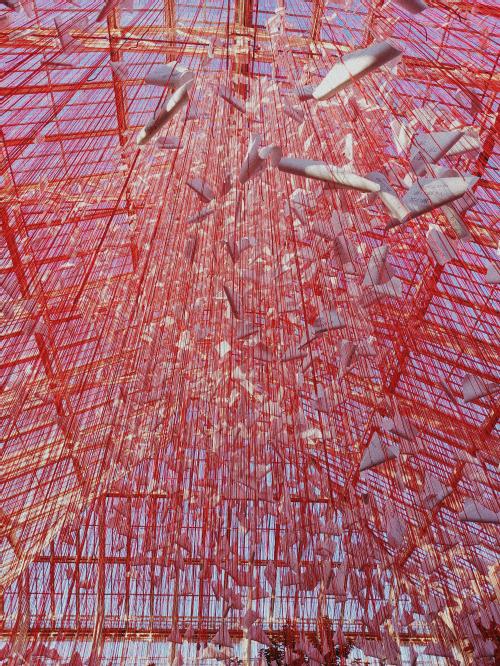

Best wishes,
June, IAE
Dissertation 101 (Time management)
I wrote before about the first step you need to take for your dissertation: choosing your topic and your supervisor. In this post, let's dig deeper into what should you do as initial steps for your dissertation. But first, let me remind you that your research's quality depends so much on how much time you are willing to invest in it. In the beginning, you are still in October or November, and you will feel like, "Wow.. I still have almost an entire year for my dissertation. Let's look at it later". However, this later comes late, and you will find yourself stressed by time, which will undoubtedly affect the quality of your research. So, what should you do? First, put a timeline for your research. Ideally, and as recommended by WMG, your dissertation requires around 900 hours of learning (if it counts for 50% of your mark). To be able to distribute these hours, you need to follow these few steps:
1. Know your modules dates and deadlines and mark them on your calendar
2. Know the holidays and your personal events days (Birthdays, feasts, etc.) and Mark them
3. Mark your PMA time on the calendar: Usually, one PMA takes a week or ten days (Some of them may take a bit longer, and some of them you can do in 3 days, so learn your pace).
4. Now you know the available weeks for your dissertation study, Mostly you will find the time allowed for a dissertation is getting longer around the summer.
5. Ask for a meeting with your supervisor and discuss your timeline with him/her.
4.Get out of the meeting with objectives for your timeline (for example, in November, I will finish the outline. In Jan, I willwork on my literature, and so on).
5. In the same meeting, try to know when the next meeting will be and what goals you will be done with before the next meeting.
6. Repeat: Keep your meetings going on and keep updating your goals with your supervisor.
Important notes:
- Updating your supervisor and arranging meetings with him/her is essential to keep you on track and avoid postponing. Moreover, if anything happens that may cause any delays, your supervisor will give you the right advice.
- In case of any personal circumstances that may affect your timeline, such as illness, communicate with your personal tutor for advice, and he/she will help you find the best solution to mitigate those circumstances.
- Again, the key for your dissertation is time management. If you give it more time from the start, you will enjoy it more and have much higher quality.
Good luck!
A day in the life of a master's student
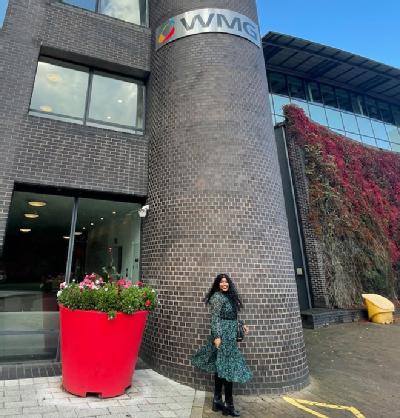
Hi everyone, I hope you are all doing well.
As a masters student there is not one day that has been the same for me. As it was Covid circumstances during the academic year 2020/ 2021 most modules and interactions with the university were carried out online. However, the experience was exceptional and I was pleasantly surprised at how an engaging and insightful course and university activities can be carried out so effectively online. I am sure the day varies for each student as everyone has their own style of working, work-life balance going on etc. During the 1 week of modules my days can be very busy and very different to my normal days post modules, and again different to the days with dissertation. Here is a little about my somewhat typical day...
Most mornings I would start by having a shower then do some mediation, with a cup of tea. I feel like this has helped me stay centred and reenergised for the day. It is hereafter I create a to do list for the day (knowing it may not all be complete by the end of the day) but being able to tick at least some or most feels like a great achievement. I feel like creating a to-do list has really helped me throughout my master’s journey by making sure I can keep in place everything I wanted, helped with my organisation and being able to take on numerous responsibilities.
Moreover, for the first thing in the mornings I try to stay off the screen- so meditation followed by to-do list and some reading is something I ike. I also try to do most of of my exercises in the morning to get a fresh start and get the blood pumping around. For me personally exercising has been a great way to also stay healthy and help my mind healthy.
I then have a late breakfast or brunch which I like to make myself from scratch.

Hereafter I like to start my day of studying whether It be 10am, 11am or even 1pm, I get started. One thing that has helped me has been having a study buddy with me, sometimes even online study buddies. I like to balance this with independent work. Depending on the task I also enjoy doing teamwork, where key attributes such as leadership, team-working, organisational and problem solving skills come into play.
During days where the module lectures and seminars run, the structure of my day is pretty different. It would usually be an intense and action-packed day filled with numerous insights, talks, demonstrations, simulations and group activities. Different modules had different times, but mostly the lectures would start around 9 to 10 am and go up until 3 to 6pm. Sitting in one module went by so quick and it honestly felt like I had learnt what I would in a year in 1 week. The structure of the modules would vary but it most certainly consisted of lectures, group activities, class activities and guest lecturers from various companies and professions coming to talk about their respective fields and application to module’s topic. I really loved the diversity and breadth covered with each module. I also liked the structure of around 1.5 hours studying and activities sessions followed by 15 minutes of break, with a 1 hour lunch break.
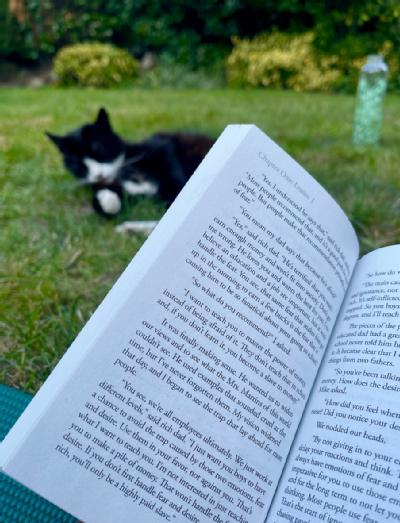
A picture of me reading during my break time joined by my furry friend.
Everyone has a different style of learning, but I personally enjoyed doing the pomodoro technique which is 50 minutes of studying followed by 10 minutes of break. It can even be 45 minutes followed by 15 minutes of break or as long or as little as you want. One big tip here is spending your breaks off-screen and doing non-work-related things such as going for a short walk or making a cup of tea. As long as you keep dispersing the break and study sessions. This technique has really helped me work more long-term effectively and stay motivated, I would highly recommend this but yet again this is a personal preference and each to their own. I think the key is trying out different studying techniques and finding what suits you the most. Procrastination may creep up with the countless things that one can do instead of studying, but when you go back to the reason of why you are studying for and when you just start, then it will all be worth it. Key is never giving up and remember a little bit every day can go a long way leading to a compound effect. So keep going- if you look at how far you have come you will understand the amazing opportunities that present itself when you go after what you desire.
After studying till the afternoon or evening, some things I like to do include: spending my time watching a movies or some inspirational clips, going to the museum, reading, going to sport classes, meeting up with friends, helping around, exploring around, and playing with some fluffy friends such as dogs and cows in my neighbourhood.

I think that achieving a balance in your day will be the most important thing to keep you healthy and well throughout the year. Make sure to get a balance.
I hope you make the most out of your experience at WMG by being involved and immersing yourself in the knowledge and practical elements by being engaged and participating in classes; a growth mindset and a positive attitude can be transformational in a study setting.
Thank you for reading my blog and hope you enjoyed it.
Sending lots of love and lights.
Warm wishes,
Lakshika
MSc International Technology Management

Post Module Assignment (PMA) Tips

Hi everyone.
I hope you are doing well.
I must say, Warwick's assessment structure is very unique but one that I felt was extremely rewarding for me as I was able to develop on numerous skills and apply knowledge from modules effectively. I loved that there were no exams of such and it was all coursework based. Part of the coursework entailed writing post module assignments (PMA's) within 1 month of attending the module lectures and completing group activities. I thoroughly enjoyed this innovative and practical approach whereby I was able to apply the theoretical and practical elements gained from the module seminars and lectures into the post module assignments with further elaboration and research upon topics of assessments.
I would like to share some of my personal tips for completing the PMA's:
1. Use material from class and notes from guest lecturer and industry experts.
Making notes throughout the modules helped me personally consolidate insights and ideas. A lot of concepts, topics and ideas covered in the module are likely to be needed in your PMA
2. Ask questions.
Particularly towards the beginning of the year, for me asking questions and seeking advice and support from numerous induvial within `WMG from the course leader to personal tutor to module leader and facilitator to different students, clarifying any doubts or seeking to find interesting new insights or ideas can help with creating a wonderful PMA.
3. Balance out your work.
Everyone has a different style of working but allowing for time to research the topic and start soon after the module teaching has finished can help you apply the knowledge straight away. Make sure that you space out time to relax and balance life with extra-curricular activities, exploring surrounding areas or hanging around with friends for example.
4. Write a to do list and create a timetable
For me personally writing a daily to do list as well as having a weekly and monthly calendar in check, helped me organise and schedule in study sessions for my PMA. If any queries arose, I also made sure to schedule in session with module leaders/ facilitators or industry experts to consolidate my understanding and help develop and broaden my understanding of surrounding topics.
5. Find your style of working
Everyone has their own style of working from being more creative to being more logical to being more organised to working better with groups of people to working better solo. I think finding a balance and seeing what works best for you to complete work to the best of your abilities is important. For me personally I balanced between having study buddies to completing work solo. I think the balance was refreshing for me as we were able to inspire and motivate one another; when working solo I was able to consolidate my understanding from lectures and secondary data reviews.
6. Plan before writing
One thing that really helped me was planning before I wrote the final PMA’s. I made sure to put all the information I had collected from lectures, books, and online journals in one document, then sectioning into relevant areas. This helped with the organisation and flow of the PMA. Jotting down any ideas that prop up along the way can be also a useful asset when it comes to planning and writing for your PMAs and dissertation.
7. Keep track of time
1 to 2 weeks of modules followed by around 4 weeks to complete the PMA goes by so quick. Make sure to keep account of the deadlines and to complete to the best of your abilities before the deadlines. I feel for me the more I spaced out the work, the more I was able to reflect from the module as well as really consolidate the new information retained from reading journals and books and talking to peers. Organisational and time-management skills will be some of the biggest skills developed over the year.
8. Believe in yourself.
It may not all be easy, but you have to have faith that you can do this. The number of skills and insights gained from each module is invaluable; along with this the tremendous support attained can definitely help. You have to remember it may not be all an easy road but the opportunity to grow as a person and develop on numerous skills such as organisational, time-management and problem-solving skills will be beneficial for a lifetime. A growth mindset and a can-do attitude can take you very far in the masters course and beyond. You’ve got this. Remember if there any concerns or problem, there are numerous people within WMG you can reach out to such as Support service, module tutor, and personal tutor.
Thank you so much for reading my blog and I hope you enjoyed reading some tips for the PMA’s.
I wish you all the very best in your studies at WMG.
Sending lots of love and light,
Lakshika
MSc International Technology Management

Exploring surrounding areas
Hi everyone.
I hope you are doing well.
I thought I would share some things to do around Warwick in your free time.
Coventry is a small town located in the west midlands in England, which makes it a great hub to go south, north, west, and east of England and around Europe and the world. With a lot of history, there’s numerous things to do such as go to museums. ue to covid-circumstances and the tight restrictions with traveling abroad, I spent most of my year whilst studying exploring much of England, wales and Scotland.
Near the university of Warwick there are some lovely places to go such as Coventry city, Warwick castle and Leamington spa.
A picture of coventry city

A picture of Warwick Castle
A bit further are places like Birmingham (their Christmas markets during winter time are great), Cambridge, Oxford, Bicester Village, Lake district, Peak District, Brecon Beacons, Edinburgh, London( I live here but was able to explore more of the city over the year as well as take a lot of my classmates and course friends around for a tour), there are also some lovely beaches around England such as in Cornwall, St Ives, Southbank, Durdle Door and much more. With restrictions lifting, there is also opportunities to explore around Europe and rest of the world as London is pretty much a central hub.

A picture of Bicester Village which is a shopping place.

A picture of Durdle Door

A picture of Lake District

An image of London from Sky Garden (I would highly recommend this place for a skyscraper view of London)
On top of this there are a lot of societies have fun events and trips around England, so I would recommend this for exploring around the country and seeing more of the UK if you are an international especially. Even getting a chance to volunteer with the university may present itself numerous international and national opportunities. Some activities that may pique an interest and I personally enjoyed during my free-time over the year include go-karting, visiting subject talks such as of climate change, visiting museums, trying different cuisines and exploring markets, going to theatres, water-sports, reading, hiking, boxing, cycling, swimming, going for walks around the park and volunteering.
I think if you are a fan of exploring around, understanding more of the different cultures, taking in the scenic views, understanding history, meeting new people, and just having fun then there’s vast opportunities present. I personally really enjoyed exploring around as a way of meditation, to get work-life balance, opening up the mind and relaxation during my year.
I hope this post has given some ideas and an idea of the countless things that are present whilst studying a masters at WMG.
I hope you make the most of your time at WMG. I certainly did and time flew by so quickly whilst making new friends, seeing new places and understanding varying cultures.
Thank you very much for reading my blog.
Sending lots of love and light.
Lakshika
MSc International Technology Management
Dissertation project highlights and advice
Hi everyone.
I hope you are doing well.
I have now completed my studies at WMG, and it is safe to say it has been one of the quickest and insightful years of my life that has flown by. I have completed my dissertation and submitting it is one of the best feelings one can have. A piece of writing so dear to you that you can have with you for the rest of your life... For many years I have had a desire to research environmental sustainability and technology. Coming from a background in business management, German and technology, completing a masters dissertation project was a perfect opportunity to explore one of my biggest passions in a long time which as using technologies be used to support mitigating climate change with a focus on veganism. I would like to share some of my key highlights and tips for completing the dissertation to the best of your abilities.

1. Choosing a suitable supervisor
Around mid-October onwards you will have the opportunity to have interviews with potential supervisor and I would really recommend finding out about the supervisors style of supervision as it can vary. Every supervisor can support you, but some may be more aligned to your subject of interest and thus guide you more in the direction so really asking questions and finding a suitable supervisor is important. Remember you will be spending almost a year working on the project with guidance from your supervisor.
2. Choose a topic carefully
After hours of debating on what topics to focus on I eventually chose one of my lifelong passions which to investigate topics revolving around exploring technologies, veganism and climate change. Make sure to do a topic you love, something you see vast potential with and a subject that motivates you. It may be very broad to start off with but with more research your topic will likely narrow down as you address the gaps in knowledge. Set out your goals and find purpose with the topic of your dissertation. There could be many reasons for you to do a dissertation topic such as personal reasons, career choice or hobby; whatever your reason for doing the topic, do it for the right reasons.
3. Time management
Time flies in one year. Make sure to set internal deadlines and follow project deadlines set by WMG such as REME1 and REME2 which are compulsory. Most importantly keep the final deadline in check and make sure to schedule in enough time for reviews and spread-out different sections. I found that having your work reviewed for additional supervisor feedback that you can work on improving really help consolidate and improve my dissertation project.
4. Checking in with supervisor
If you have any concerns or any opportunities, you would like to explore I would highly recommend reaching out to your supervisor. They are there to guide you and support you throughout. For me keeping in contact with my supervisor at least once a month helped make sure that everything was on track thus giving me reassurance.
5. Networking
I think this is one of the biggest differences between making a good and great dissertation. The more you connect with different industry experts, professionals, lecturers, researchers and other key stakeholders, the more insights and untapped knowledge in your subject area you can gain. You not only learn from subject area but elements such as links to relevant topics to your dissertation topic can be brought upon, giving you a new perspective and approach to study. I was able to connect with numerous industry experts for my dissertation which helped consolidate my understand and also bridge the gaps in knowledge from the secondary data collection in the literature review.
6. Plan ahead with research area for a well-rounded thesis and take note of any ideas.
For me, I had an empty notebook just for the dissertation where I would brainstorm ideas and jot down ideas that propped up. I would say this is one my biggest tips- if any idea props up relating to your dissertation just write it down in your notes. With more research you may find that your research topic may deviate slightly to the initial plan- that is perfectly fine as long as you keep you supervisor or WMG members informed to keep in check.
7. Be realistic and stay focused to research objectives
Your research objectives should be realistic and should be carefully constructed, making sure you are able to achieve the goals within the given time frame. Continuously keep track of your writing with research to your research objectives so you do not lead astray.
8. Start early
Start early so you can have more time to space out work, for literature review, methodology, primary data collections if any, results, analysis and discussion section and finally the conclusion and recommendations.
9. Look at previous different student dissertations
If permission is attained, I would recommend you having a look at different dissertations from students to get a gist of how dissertations can substantially vary in style and length. Remember quality over quantity, but seeing the different styles may give you some inspiration.
10. Compare your work with the requirements
If you want to go aim higher look into the dissertation requirements for the grade boundaries and ask for guidance on how to improve work. Some elements you can do include compare varying authors and synthetise work- analysing and critically evaluating work, look for knowledge gaps in literature and data collected. Moreover , certain elements of the dissertation may carry some more weighting for marks such as the literature review and discussion so make sure to really focus on being critical and solution-minded here.
11. Adhere to guidelines
Make sure to adhere to guidelines, be careful about plagiarism, following layout, font sizes, clarity of diagrams- all the small things which all play a role in the well-roundedness of your dissertation.
12. Have fun
Have fun with the dissertation. It is your masterpiece. Let this piece of work reflect your critical thinking, innovative thinking and clarity. It is your piece of mastery, so be flexible and remember to have fun along the way, mastering great balance.
I wish you all the very best in your dissertations. You’ve got this.
Sending lots of love and light.
Warm wishes,
Lakshika
MSc International Technology Management


Send Postcards to Your Home Country
Do you want to send postcards to your friends from the UK? Although I have heard that there is a 50% loss rate and the most critical one is at the gatekeeper's place (if you send postcards to China) 😱 ...... The sender and the recipient are waiting together for a postcard that has travelled across the sea. Why not have a try?
Below is a template sending postcards to Mainland China.
Postcode: ******
To: P.R.CHINA
**Province
****(Address details in Chinese, down to the door number)
***(Your friend name) 收,Tel.*******
From: ****(Your name)
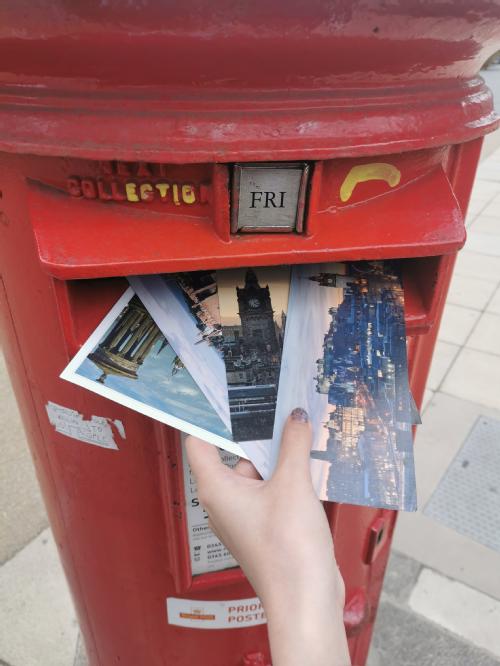
The blue By Air Mail sticker is not compulsory, but some post offices will still give it to you. When you buy a stamp, just say it's for your country and it's usually £1.70 per stamp. Another amazing thing is that after walking around a number of shops today, I found that the shops selling cards in the UK really only have different types of cards, but not postcards! Postcards are only available in souvenir shops!
Good luck!
And good luck to your friends! 😊
Jun Zeng | e-Business Management
Visiting Lands’ End, Cornwall
Hello Everyone,
A couple of months ago, I went to lands' end Cornwall with my friends. We went to this place after we visited Dorset. At first, we wanted to go to Stone Henge, but we didn't get the ticket, and the weather in Salisbury was not good, it was rainy. So, we chose to go here before took a rest in Newquay. The journey from Dorset to Lands' End was 4 hours by car. We cramped in the car for almost 8 hours that day. What a trip, but it was worth it. Lands' end was like others Cornwall beach. It was very beautiful. The place has a remarkable history that fascinated many people and inspired many stories and works of art. According to Lands' End official website, the site has mythical stories about 'Lost Land of Lyonesse' lies beneath the waves between Land's End and the Isles of Scilly. Lyonesse was a part of King Arthur's realm drowned by the sea on a stormy night. You can explore this history about the place in its museum and, it's free. So, what are you waiting for after submitting your dissertation, pack your bag, and explore Cornwall?
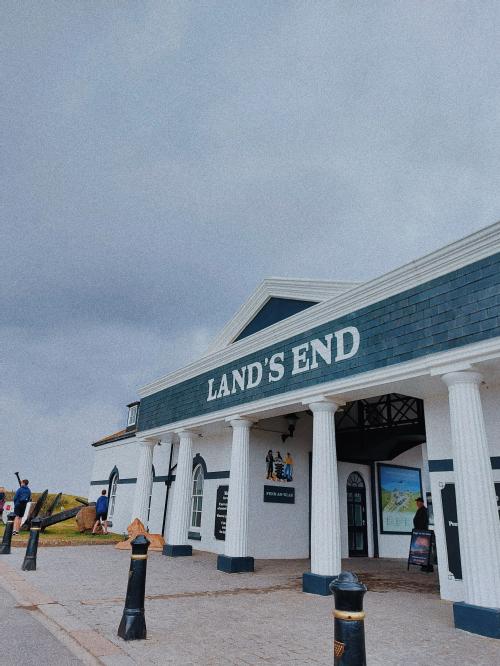
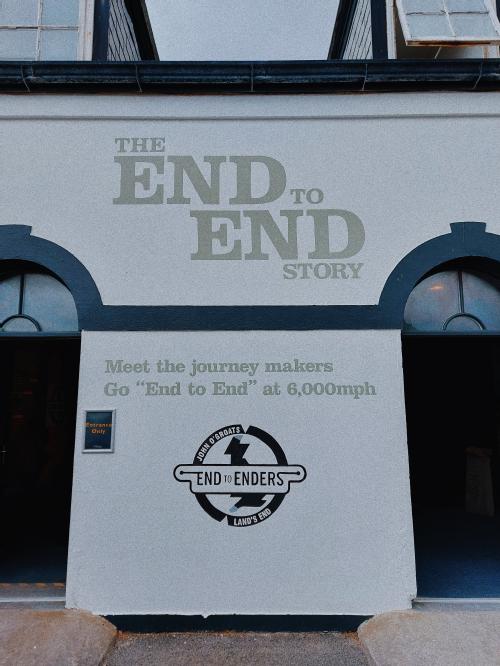
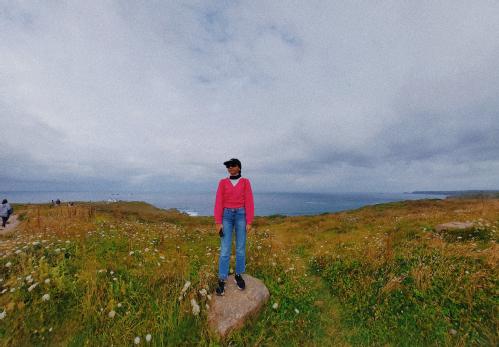 \
\

Best wishes,
June, IAE
How do you like e-Business Management course? Part-2
‘Generally speaking, it is great, and I feel that I am learning new things year-round. '

Q: How is your course experience, and adaptability?
A: In terms of language adaptation, because there are subtitles and the teacher's speaking speed is relatively slow, in fact, I can adapt very quickly. The rhythm of the class feels good, the teacher explained each point very clearly, and you can watch the replay after class.
Courses are held from morning to night, even though it is a lecture, so it's a full day of learning.
In groupwork, I can work with many different students. Some are from the same specialism, others are not. I can therefore learn from other students.
The curriculum is very good and reasonable, and I feel that I have learned a lot. Although some of them are not very in-depth, at least I feel that I got the concepts and a framework so that I can start to learn by myself.
Q: What do you think of the course schedule this year?
A: Our course arrangement is not very good. It was very very intensive. I feel that PMA and project are piled up together.
Our course schedule for this academic year is a bit strange, because at the first several months we did not have too many courses, but there were a lot of classes in May and June, plus writing PMAs, dissertations, and finding a job, was very rushed.
Q: We took online classes for almost the whole year (20-21), how do you feel?
A: I personally think that the online course is quite good. There are replays and subtitles. I think this will be more efficient for me. And I can lie down and watch when I’m tired. Haha. The teachers are also very nice. In short, it is not tired plus can understand more.
Q: What about life?
A: Apart from going out to play and being unable to eat in, I feel dizzy every time I am hungry.
(P.s. This happened when the UK has not been unblocked. It was too miserable to eat in the cold wind).
The location of Coventry is okay…close to Birmingham and it is very convenient to go to London.
Jun Zeng | e-Business Management
IT services (Hidden Gems)
During your study at WMG, you will find some emails coming to you from the IT services. Those emails are not only about updating your IT account but also about some great learning opportunities that you can get through the IT services. Before telling you what are these opportunities I want to pass my greetings and thanks to this IT team who successfully made our pandemic year learning experience much easier.
Now, let's see what they offer. If you visit this link you can access the ITS webpage in which you will find a guide to all their services.
1. Research
Through this page, you can find all the resources you need to know about how to store your research data and what are licenced software tools are allowed for you to use to collect and analyze your data.
2. Learning and teaching
using this service will make it easier for you to familiarize yourself with Warwick virtual learning environment (Moodle) and the licenced software for learning such as MS Office, MS teams, Matlab, SPSS, etc
3. IT training
and this service I consider it the real hidden gem that students can take good advantage of. The IT training gives you access to live and recorded trainings for the most used software programs in many areas and industries. There you can learn analytical software tools such as Excel, Access, Qulatirics, and SPSS. You can also learn design and graphics tools such as InDesign, Photoshop, and Illustrator. In addition to Python, Matlab and all other MS services that we use as students.
I encourage you to take advantage of such an opportunity to enrich you technical skills for a much stronger CV after graduation. You can also follow Twitter of the IT training by which they post tips and announcements for their new training intakes. Follow them @trainingWarwick.
Good luck with your study!
Reading List: Dissertation Books
Hi everyone,
Many of you are busy with your dissertation deadline right now. Good luck! You are one step closer to freedom. Anyway, I wanted to share some books that have helped me to write my dissertation. I am still not finished writing my dissertation due to health issues, but the end is now close. I really need your prayers, so I can get well very soon and finish my dissertation. Anyway, here is my list of great books that helped me write my dissertation. You can borrow these from the university's library :)
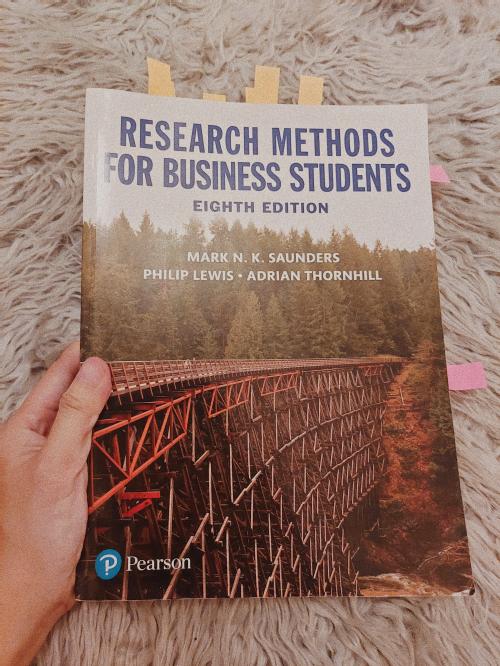
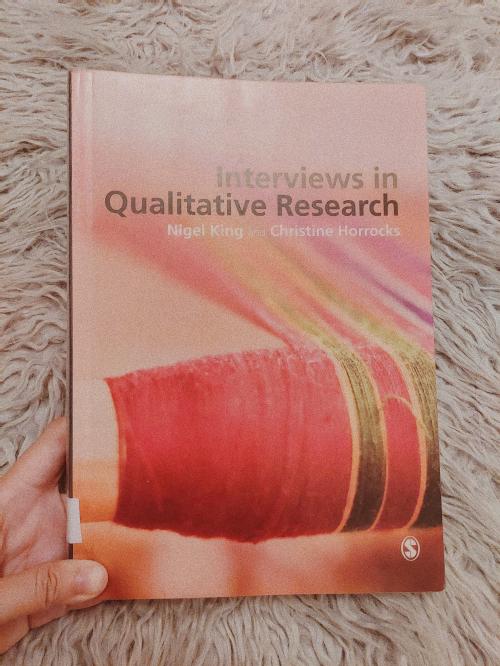
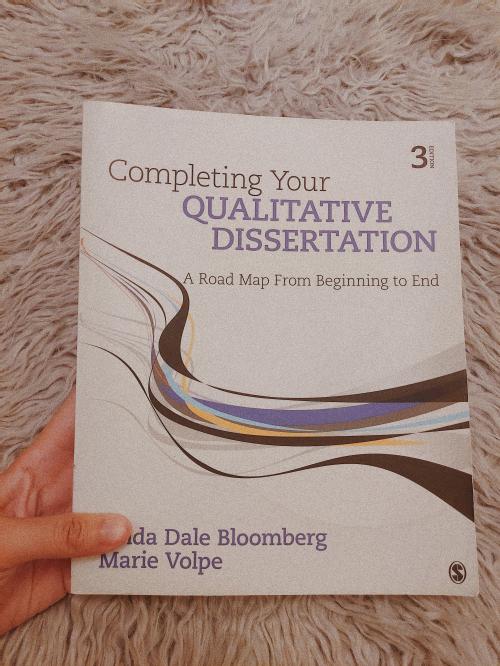
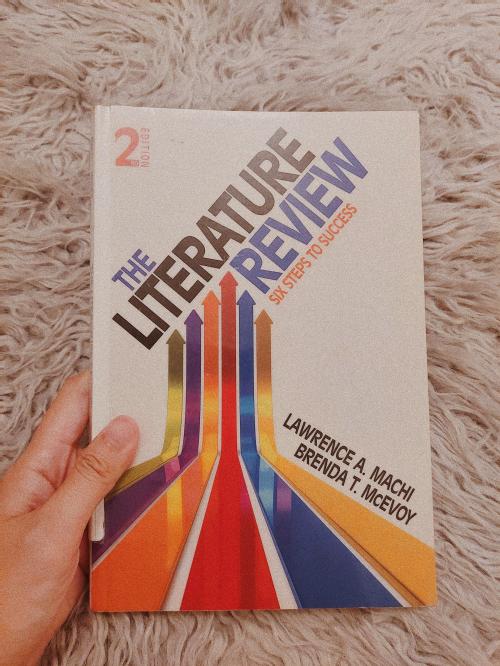
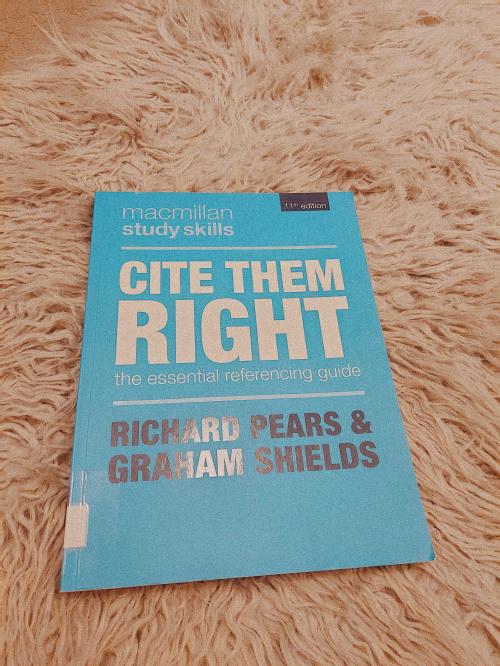
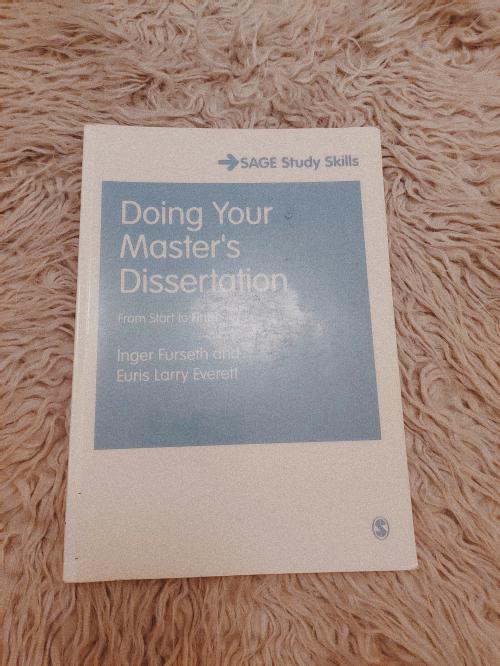
Best Wishes,
June, IAE
Maintain your wellbeing on campus
Studying masters degree in one year is quite a challenge. Not only loads of PMAs, but also external factors affected my life a lot. Especially, it was stressful because of the covid pandemic situation; I couldn’t meet many of my friends, travel OR out from November to April. So, I tried to find ways to boost my emotional well-being as well as physical health. I would like to introduce some methods that I tried to improve the quality of my life.
Firstly, I used wellbeing support services in the university. Even during the lockdown, the wellbeing support services were still opened. I could book an MS team meeting via online registration for my wellbeing consultations. Throughout the meeting, I could have good advice to keep my emotional health in good condition. In addition to emotional health support, the wellbeing support team also support other student issues such as family, harassment, sexual misconduct and time out from the study. Similarly, Warwick SU provides ‘nightline’ service. Trained student volunteers run it. If you want someone to talk to without being judged, you can feel comfortable and safe to call on nightline.
Secondly, I started regular exercise. Before the lockdown relief, I used to run every morning. Since the campus is huge, I could take a different route almost every day. When I run, I could feel refreshed, and my muscles get stronger. Interestingly, you can find running routes by distance and area and running guide and running groups. Through this link from Warwick sports, you register under "my crew" and get a chance to meet many friends to walk and talk with. In addition, I would like to recommend one running application called “STRAVA”. There are Warwick running routes already updated on the application. What really motivated me is that the app compares my record on a certain route with others average. I sometimes challenged myself to break the record. (I got a nice Warick T-shirt from Warwick sports centre for completing a running/walking 6000 daily steps challenge for a week!)
Last not but least, the best way to relieve my stress for the previous five months was to explore the campus with friends. There are three pubs on the campus which are Dirty Duck, Terrace bar and Varsity. My favourite is the Dirty Duck. The price is very reasonable, and the food is nice. Also, Varsity is an excellent place to visit after submitting a PMA. The mood is very chill. There are many barbeque places on campus (I lived in Claycroft, so I used to go to the barbeque place near claycroft3). Find your nearest BBQ spot and Enjoy!
Choosing your project topic and supervisor
Most of the WMG course marks consist of 50% for modules and 50% for your research project. But what always happens, or let’s say what happened with me, was that I focused much on the modules, and I found myself stressed about my project's first milestone (Choosing the project supervisor and the topic). Studying for your master's degree in one year is quite a challenge, and to maintain a high quality of this year, WMG gives the students the chance to start working on their research as early as possible. So, keep in mind from day one that you need to explore more about the area you will do your research about. If you have no idea what exactly you will research about or you have too many ideas and so confused to choose from them, don't worry; these few steps worked very well for me:
1. Know your dates and deadlines
The first step is to know your timeline, when the supervisor selection system will open, and when it will close.
2. Define your personal goal
What is your goal from your research? Are you exploring a new area? Are you developing your own business? Are you aiming for a promotion in your company? There are many reasons, and you need to find yours to be your guide while choosing your topic.
3. Talk to the experts
I advise three types of experts you can talk to. First, your tutors or course leader, share your goal with them and ask them for advice on how to choose your research topic. Second, you can learn from previous students what worked well and what didn't so you can improve your selection process. Third, experts in your field; can be your manager, mentor, or someone you know who is in the market and updated with the market trends. And yes, there is another important advisor, but I guess you automatically go for it, Google! Search for new trends or topics in your industry and get inspired.
4. Define general areas of interest
By now, you will have formed some general areas of interest , or maybe you have an idea that itches your mind to do your research about. Write them down and wait for the selection system to open.
5. Narrow down
once the system is open, you will browse tens of supervisors according to your course. Use the filters to narrow down your search. Make a list of those who target the same areas of interest as yours. It doesn't have to be the exact area, most supervisors are flexible, and you can always discuss it later. During my shortlisting, I considered the supervisor's area of expertise; I even checked their Linkedin profile and any published work for them. All these can help you find the right ones for yourself.
6. request interviews
Now, you know the supervisors you are targeting, start requesting interviews when the system allows you (A later date than the system opening date). Through the system, the supervisors will see your application and communicate with you if they are interested in arranging an interview. In the interview, ask as many questions as you like, and they will be happy to answer. My main focus was on knowing how they would guide me and what they think about the topic I chose.
7. Decide and apply
Usually, after doing some interviews, you will find yourself more comfortable with one or two supervisors. It's important now to choose your most preferred one and apply. A good tip here is to communicate with the supervisor and see if they accept you, as this will save you time and effort. Why? Because if you apply for more than one at this point, you will be matched with the first one who accepts your application. So, make sure you apply for your priority first.
I hope those tips are helpful and good luck with your research!
Exploring Dorset
Hello Everyone,
Last month, I went to Dorset to visit Durdle Door with my friends, part of our road trip to Cornwall. I believe this is the longest road trip I have ever had. So, we went to Durdle Door for 4 hours by car from Coventry for the first day. The thing that I love about studying in Warwick is I can explore the UK very easily because Warwick's location is in the heart of the UK. The Durdle Door is very beautiful. The rock formation is unique. When we went there, the weather is very warm, but the wind is very strong. I could not walk straight, and I wore the wrong clothes. I thought the weather will be hot and not windy. Overall, I really enjoy my time here. We spend our time in front of the beach, sunbathing, talking, singing, and bonding with friends.



Best wishes,
June, IAE
Scholars
Hi there,
Following my previous post, I would like to take the chance to share what was about the Scholars Event hosted by the University, as you might imagine, this academic year did not allow lots of social events because of the contingency so every event the university is hosted it was a big opportunity to expand my network. The Scholar event was exclusive for those students who have any scholarship or agreement with Warwick and our home countries, so if you are one of those students you must be very proud of yourself of such achievements; to have received an offer to study here and to have been chosen for the scholarship.
During the event I learned about all programs and scholarships available at Warwick and of course how competitive they are. To be honest I am very happy to have attended such event, not only because I met new people, but also because I realized the importance of networking. It is admirable to get to know people from every part of the world who experienced similar process to receive a scholarship. I got excited about the idea of myself helping to upcoming generations while supporting scholars. So speaking about events and networking at Warwick, I would like to share some recommendations in order to build networking outside your study field.
· Encourage yourself and talk with people… so if you are shy, I guarantee this is one skill you are going to develop during the masters. When you do speak with people they know what are you doing and vice versa, this is important because they might know someone who might help you with whatever you could need ( you never know, the world is so little), you will not believe how easy and fun result when someone say “I actually know someone interested in the same topic as you, I will let them know about you”.
· Connect with people through social media, when time allows it, ask them if they would like to connect, be polite and professional and use Linkedln at the beginning, is the most convenient platform in my opinion. Especially because once we have finished our course we will move out from campus (Coventry) so keeping in touch with people might be hard if they were not your course mates. You never know when the is next time you will see them again.

5 Great places to write your dissertation on campus
Hi Everyone,
Time flies so fast. I can't believe we are already in the last month of our study postgraduate in the university on campus. I think you're doing your dissertation right now, or maybe some of you will submit it next week so you can explore the UK. I dedicated this blog post to someone who still fights to finish their dissertation and wants to find a new place to write but doesn't know where they are. Here I listed 5 great places to write a dissertation on campus based on my own experience.
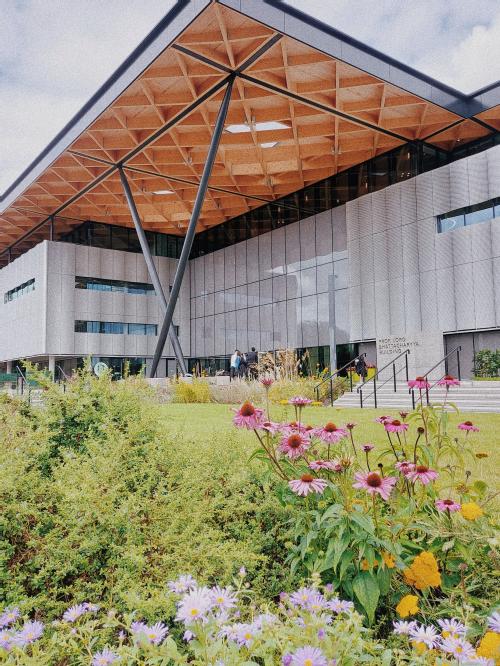
1. Library
This is my favorite place to write a dissertation. The area is quiet, and the atmosphere is good for study. I think this is perfect for someone who likes books and peaceful places. You can also use two monitor PC to process your dissertation data. I am very excited to see the new library after refurbishing.
2. Oculus Building
This is perfect if you want to study in a café atmosphere. The chairs are very comfy, and the large window is awesome if you need to take a rest a few minutes from your laptop monitor just to see the green trees. It is not perfect for someone who likes a quiet place because it is a little bit pack.
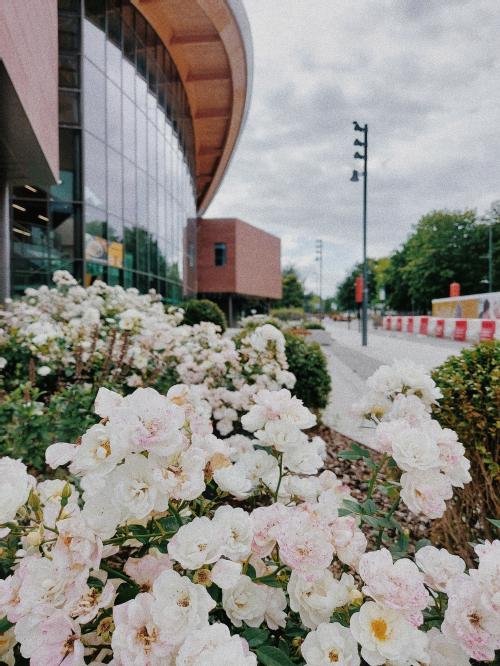
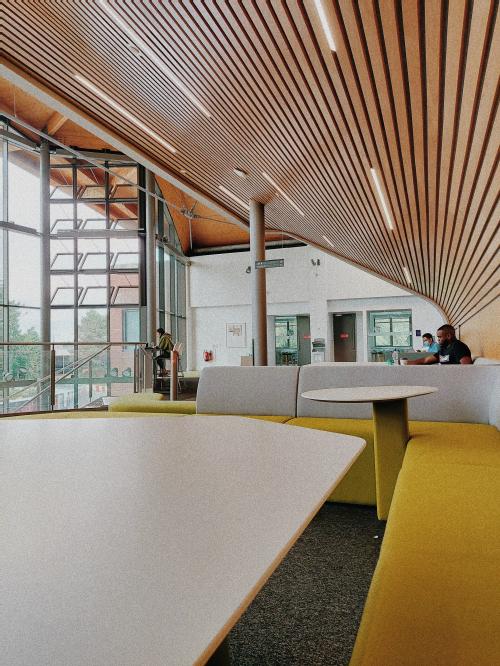
3. University House Building
I just found this new place with my friend. And it is great if you need a big iMac screen to process your data. This place provides you with it. I think some people don't know this place, so I rarely meet students here.
4. WMG MEC Building
Another good place to study for WMG students. This place is perfect for someone who likes to write a dissertation together with friends. You can also bring food or instant noodle because this place provides hot water and a microwave.
5. PG HUB
My least favorite place for me is because this place is crowded, but most people love this place. Almost all my friend spent their time writing a dissertation here. They said it motivates them to see other people do the same, making them feel alone writing a dissertation. It's back to people's preferences.
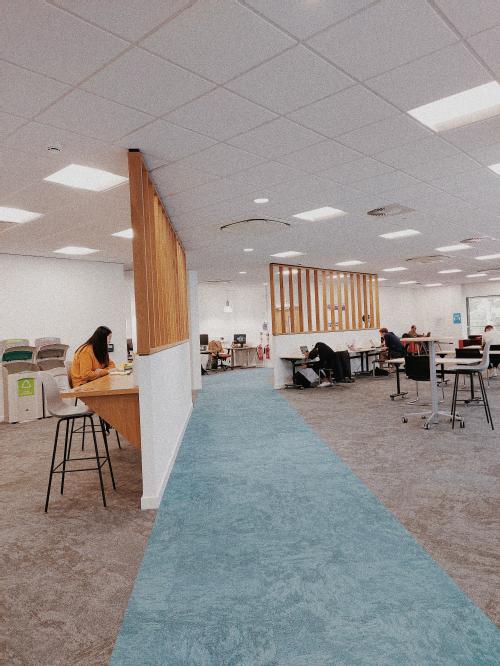
Best wishes,
June, IAE
It's all about your security and SAFETY!
Follow the simple rules in your life so that you can keep yourself and your data safe and secure:
Change default WiFi password – If one has received a default password of WiFi, then they must change the password. This step will protect you in case your default password gets hacked.
Maintain separate passwords for personal and educational (professional) use – The reason being even if your (personal) email gets hacked, your professional email, which might contain sensitive and confidential information will remain protected.
Change your password every 60 to 90 days – It is a good practice updating your password after a defined time interval because it will prevent your account to get hacked as it will introduce the element of difficulties to crack the password.
Use password managers – Do not use standardised keywords as your password as it will be simple to brute force and identify. Create a unique password and store them with the help of password managers.
Turn on two-factor authentication (2FA), where possible – 2FA gives you a provision of sending a code to a second factor that is accessed by you and only you, such as a mobile phone or app. It will make sure your data gets protected with multiple layers of security.
Ensure you inculcate the practice of screen lock for all your smart devices – With the advancement in technology, one could use biometric like a fingerprint or retina lock to enable screen lock, which makes it difficult for an attacker to unlock your smart devices.
Keep your computer and installed software up to date – All your operating systems and software providers send regular patches to mitigate vulnerabilities and fix security issues to safeguard your machine and data. The providers expect the users to regularly check for updates and follow the easy steps.
Acquire the habit of taking back up – Upload the most vital data to an external hard drive or cloud-based storage system such as OneDrive. It will help you access your data if your device gets corrupted or infected by a virus.
Do not tailgate – While accessing the university building, if you happen to notice that someone is tailgating, then validate their badge or report to the staff member as that they can take corrective actions against it. We must understand that physical security is equally essential as digital security.
When university students adopt all the above preventive measures, it will keep the cyber attackers at bay.
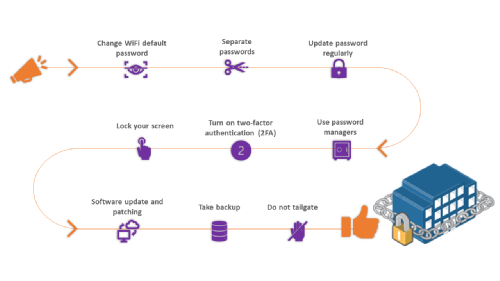
Networking and its perks...
The day you decide to attend the open day of university, you have started building your network (unknowingly!). The reason I emphasise building connections is that the people with whom one interacts might help them during the admission process. Based on my personal experience, I communicated and built a professional connection with a resource from the WMG admissions committee team and to date (s)he assists me in stressful academic situations.
I am not asking you to make connections for your benefit and selfish reason. Remember, it is a two-way streak. You build your network to rely on for support, guidance, and help, where possible. It may also reap your big rewards in the long term. At the same time, you must extend your helping hand in their (your connections’) vulnerable time. Irrespective of your designation, you must build your connections to progress ahead as every individual in your network matters.
At WMG, University of Warwick, your connections will begin by working or studying together in groups and being an active team player. Formulating a group is one way of building your network, as everyone in your group will know at least one new student with whom you can get connected. The latter technique expands your group and connections. Alternatively, being a member of societies will expose you to communicate with staff and students at the university.
Here are some tips for building your network:
Imbibe networking as a natural reflex – Do not overdo it but if you shy away from people, try to practise it in your daily routine.
Know your audience and goals – Before you attend a social event, aim at how many people you will connect with and what piece of information you are looking for.
Stay connected – Once you have connected with an individual, try and maintain the relationship with them by following up and do not lose your connections and the time you invested.
Remember to continue expanding your network in your professional life by connecting with your clients and colleagues at social events or drinks. It might help you - securing new job opportunities, a promotion at work, receive career advice and advance in your area of expertise, gain insights and knowledge, create and raise your profile and many more.
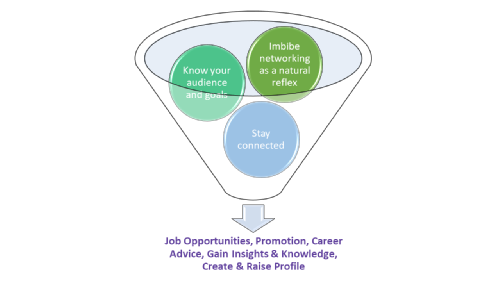
Summer events
Hi There,
In the UK the restrictions have started to lift so more activities are allowed and the university has been kind enough to prepare such social events. So today I want to share some events I attended at the University of Warwick which after such year of restrictions, they were extremely fun. The first event was SCLM BBQ, thought for meet students from supply chain which if you do not know it is the masters I am perusing, in this event I had the chance to officially meet some of the colleagues that I had “e-met” during our modules, it was such an opportunity to socialise during this challenging year. Although the capacity allowed up to 20 students, I was one of the luckiest one who booked it.
The event was organized by the University and was about fun, food and games; a food truck was on charge of the food, and because was arranged outdoors there were lots of games such as tennis, badminton and soccer. When I arrived (a bit late) they were gathered in a circle-shape-meeting talking and meeting each other. To be honest I was surprised about some colleagues, they looked different as I imagined in real life because our interactions had been through teams and about uni tasks, I had had few opportunities to get to know them, know about their drivers and shared how challenging the master is. It was good to connect with them and know that I was not the only one under same circumstances.
During the same month I also attended another BBQ but this time for WMG students, the idea was the same but this time they change games to live music.
As you might imagine, students from almost all courses attended, such a great opportunity to know more people, people that you might spot on campus but never had the chance to say hi.
Turns out a great opportunity to expand your network at Warwick, make friends which now are not strangers anymore, you see them at the library, and now you take 5 minutes breaks for a coffee with them.
Undeniably, I loved these events which have improved even more my summer.
Course representative experience
During all my student life since primary school, I used to be very active and always took part in student activities. I found joy in meeting new people and helping my fellow students with their problems or their suggestions to come true. And that is what I did when I joined WMG as well. I got elected to represent my course in the Student-Staff Liaison Committee (SSLC). SSLC is a committee made up of elected student representatives, called Course Reps, and staff members called Academic Convenors. It is a student-led area with the aim to connect students with the staff members through regular meetings and activities.
Through SSLC, we had a chance to discuss many challenges that face students, especially with Covid 19 and the lockdown. The discussions were very fruitful and full of suggestions to mitigate the impact of this hard time and create new online and social distancing activities for the students. Moreover, the SSLC works as an area for students' voices regarding any complaints or problems. All you need to do is use the set system to put the matter on the SSLC meeting agenda, and in the meeting, you discuss the matter with other members, and you can get a prompt response in the meeting or escalation with follow-ups till the matter get resolved. Going through this experience showed how much WMG is committed to listen to the student's voices and help them get the best out of their experience.
Apart from the duties, being a course representative and especially the student experience officer gave me the chance to make friends from other departments and meet very nice people from the staff member who really made a difference in my stay here.
If there is one thing I can advise with, it will be: Get involved in as many activities as you can, build your network and make friends while adding value to your CV as well. Your stay for the academic study is good, but adding activities and network makes your stay great!
Learn more information about the SSLC from here:
https://warwick.ac.uk/fac/arts/schoolforcross-facultystudies/gsd/currentstudents/sslc/
My advantage... The student opportunity platform
Once you are enrolled on your course, you will receive emails from different university offices such as student opportunity and career services or the student union. Many of these emails invite you to different events specially held in the first week (aka indication week) on campus and online. To sign up for those events, you will find yourself using a platform called (My Advantage). My advantage is the platform that you can access using your ID through the university website. Through (my Advantage), you will access many student opportunities, including vacancies, appointments and events.
Vacancies
On this page, you can find many jobs posted from all over the world. You can search for jobs by location or job type. The page also includes opportunities for International students, competitions, open days and scholarships. Keep in mind that all those opportunities get updated regularly, so keep checking at least once a week.
Appointments
This section shows all your booked appointments and enables you from booking new ones. Through this service, you can book a one to one session with a career advisor who can help you move forward and take decisions towards your career or get feedback on a job application. In addition, you can book an appointment to have advice about dissertation writing or visa and Immigration.
Events
On this page, you will be able to find all the available events for students. The events can be workshops and seminars on certain Academic or professional skills. They can be employment fairs or employer sessions. Moreover, you can also find social events for all students or specific departments, which I really recommend for you to join to get to know more people and make friends outside the academic context.
The platform also has news and activities to keep students updated with all the available opportunities. You might feel overwhelmed by the huge number of opportunities at the beginning, but by the time you will get to know what exactly you are looking for, the platform will be much helpful. University is not a place to only study new subjects but also to prepare yourself for the future. By this platform, you will feel enabled and accelerated towards your career goals.
MY ROLE AS A STUDENT MARKETER
Yes, what you are reading right now is one of my tasks as a student marketer. Writing blog articles and posts that can make future students get a real picture of what studying at Warwick University actually looks like, and at the same time, helping yourself.
The role of the student marketer is significant, as it helps to bring humanity to the complicated process of decision-making when it comes to choosing the university where you will undertake your bachelor's, master’s or PhD; making the future student get to know the institution not from a manager or a teacher, but from another student with whom they can relate.
Especially when you are an international student or when you are in the midst of a lockdown, and it is impossible to visit the facilities and the atmosphere that they convey, having the possibility to read what other students say about their experiences is extremely helpful at getting to know the place and making up your mind. Even for the people who can visit the facilities, the work of the student marketer can be of good help too, as it often displays what cannot be seen with a mere visit, like the whole academic and social experience as such.
As someone who was at this point not so long ago, I feel great helping fellow students make their decisions through my own journey. But, apart from being something I do for them, it is also something I do for myself.
Even though it might not seem like that for most of you right now, being a student marketer has had a great impact on my life too. Documenting my journey at Warwick University makes me reflect deeply on each moment I go through much more, thus teaching me to appreciate every small detail. Besides, it allows me to keep my memories alive and saved as if this blog were my life diary at Warwick.
Therefore, I would really recommend this duty to whoever wants to help fellow students get to know our university in the way we would have liked it to be for us; and most importantly, to whoever wants to, as well, get some benefits out of reflecting on our time here. After this position, I feel that I am closer to the university than I was before and have been able to contribute to exposing all the good things that Warwick University offers students. All in all, after having been able to have such a great academic experience here, how wouldn’t I explain it to other people so that they can do too?
Let’s get down to the nitty-gritty of modules…
Based on my experience, every module last for five days (usually Monday – Friday and may vary depending on public holidays). All my modules were worth ten credit points; hence, I had to invest one hundred hours for each module and achieve the specific learning outcomes. Now, out of these one hundred hours, I had to attend forty hours of taught sessions. More or less, the days during the module week can be visualised as:
0900 Hours – 1030 Hours: First session of the day.
1030 Hours – 1100 Hours: Break
1100 Hours – 1230 Hours: Second session of the day.
1230 Hours – 1330 Hours: Lunch Break.
1330 Hours – 1500 Hours: Third session of the day.
1500 Hours – 1530 Hours: Break
1530 Hours – 1700 Hours: Fourth and last session of the day.
1700 Hours – 1800 Hours: Reflection session of the day.
NOTE: It depends on the module tutor how (s)he designs the timetable for the week, and your break timings, start time, end time and other things vary accordingly and sometimes changes on the fly based on the speed at which lectures finish.
Day One – First session is the module introduction entailing the topics covered in the module week and a quick walkthrough of the timetable. This session may include an icebreaker introduction of students with module tutors and each other for the first few modules. The second session can be a guest lecturer where an expert on the topics covered in the module will come and share their experience and cite real-world examples where possible. Mostly, during a technical module third, and fourth sessions consist of practical lab work where we explore a tool and try and implement our theoretical knowledge learnt during the first two sessions of the day. If it is a non-technical module, the module tutor will cover specific topics in the third and fourth sessions.
Day Two and Day Three – Both these days, follow the same trend as day one, except for the fact that the first introductory session is replaced with a topic-specific session.
Day Four – In a given scenario, if your grades comprise IMA plus PMA, then the mini-case study question is announced, and you either need to work in a group or individuals and present your work on the following day. However, if this module is graded purely based on PMA, this day will be the same as day two or three.
Day Five – It is a big day as you got three significant tasks: present your IMA work which consumes two sessions; receive, discuss, and understand your PMA question consumes the third session of the day; and finally, reflection and feedback that calls for the last session of the day and week.
You have earned your weekend! You need to relax, but please do not forget to start working on your PMA from the following Monday as the module is fresh in your mind, and you can get the most of it done in the following week without breaking your chain of thoughts.
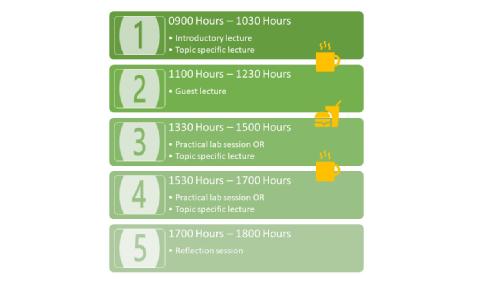
Module Assessment - Behind the scenes!
An innovative learning pathway of studying Post-Graduate Taught courses at WMG, University of Warwick is to get assessed based on deliverables submitted and not dependent on written or oral tests or exams. We shall understand different types of assessment. Furthermore, different types of scenarios we should expect and, most importantly, what skills should we possess and which of these skills will get enhanced in our journey. Food for thought: To understand at the beginning of the module how will the module be assessed.
Types of assessment
Post Module Assessment (aka PMA) – As the name suggests, this type of assessment takes place after the module delivery week.
What to expect? The essence of PMA is to deliver a report based on a case study. In my case, we (the students) were supposed to be the cybersecurity specialists/professionals working in a cyber security firm and analyse the current framework, estimate, and recommend future security architecture for our clients. Please make a mental note that these clients can belong to different sectors like finance, healthcare, utilities, and many more.
Which skills get enhanced?
Interpretation – Understand the background of the case study and the question that needs to be addressed. The key factor is to understand your audience for whom is the report targeted.
Reading – Improve your comprehending skills and inculcate speed reading by studying as many articles related to the topic and pick the best ones based on your critiquing practice.
Writing – Adhering to word count, presentation in terms of the page number, header, footer, uniformed font style and size, dedicated heading and introduction and conclusion to each section.
Referencing and Plagiarism – Follow your department referencing style and all the protocols of plagiarism. Ensure you complete both the training available on Moodle.
Techno-Functional – Think like a professional technical employee possessing functional knowledge of the domain.
In Module Assessment (aka IMA) – This type of assessment happens during the module delivery week.
What to expect? Solve a mini case study, answer multiple-choice questions, group exercise or others. For instance, we have been provided with a data file to perform geospatial analyses, formulate a brief presentation, and deliver the group presentation.
Which skills get enhanced?
Presentation – Creating slides, posters, excel data and stitching the group work and verbally present the group work.
Team Player – Distributing tasks among students in the group, and then collaborating their ideas and work into a single deliverable.
Time-bound Delivery – The group tasks are designed to be completed within a dedicated timeframe and present to the board with a constraint of time.
If you note carefully, all the skills are interlinked, and you should not try and master only a particular skill or develop a specific skill-set.
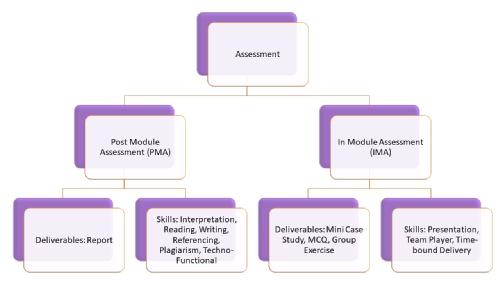
What is it like to study MSc International Technology Management?
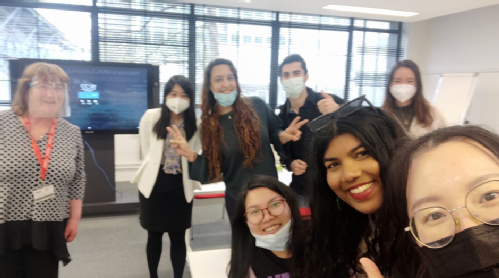
How I came to study a taught MSc International Technology Management?
Coming from a mainly business background with a BSc in German and Business Management to having accumulated some experience in the technology sector with my internships and work; doing the MSc International Technology Management was a big jump, one that I am grateful for. Actually one of the biggest factors that drew me into WMG was the unique opportunity to study a taught MSc in International Technology Management- there were not many universities doing this course. So I began my research and with further digging, talking with staff and students- I was convinced this masters would be a perfect opportunity for me to develop on my skills and learn more about technology management. Much to my surprise, this masters was much more than just technology management. It was far from what I initially thought when I thought of technology management being pretty much coding etc. however through this course I was able to truly see the bigger picture as well as the smaller picture in the world encompassing technology.

Modules:
With an array of varying but interlinked modules from Technology Management, Systems Engineering and Systems Thinking to Leadership, International Joint Ventures to Managing Innovation and Change, I have truly enjoyed my time here and feel I have learnt in 1 year what I would in 2 or 3 years. To name some, from developing my design thinking in the technology management module to discovering my leadership style in the leadership module to developing problem-solving and critical analytical skills with being transported to a mars habitation project in the system engineering module; this masters journey doing this course has been a rewarding and invaluable investment. Despite the numerous opportunities and challenges throughout, it has been one of the best decisions I have made and one where I have grown as an individual and student in life.

With the 21st Century, technological transformation is rapidly changing the landscape and I feel like this course has covered:
• an excellent balance between management attributes and technology attributes giving a great overview of using technology in real-life world to steer and transform societies internationally forming business value;
• providing me with a breadth of insights into the world of technology and enriching learning experiences with applying technology in real case studies;
• practical insights with industry simulations, experienced lecturers and guest speakers from big companies to start-ups;
• developed on professional and key skills such as design thinking, emotional intelligence, communication, critical analysis, problem-solving, innovative thinking and team-playing.
I am grateful to have experienced such an action-packed, enriching and nourishing course with a lot of real-world benefits. Shoutout to our incredible course leader Angela Clarke (pictured below with some of the students from my cohort 20/21) and everyone involved in this amazing journey.

I hope you enjoyed reading my blog and thank you very much for reading. Stay tuned for more insights into my time here at Warwick.
Sending lots of love and light,
Lakshika Thuthipavananathan, MSc International Technology Management student
My personal experience with WMG


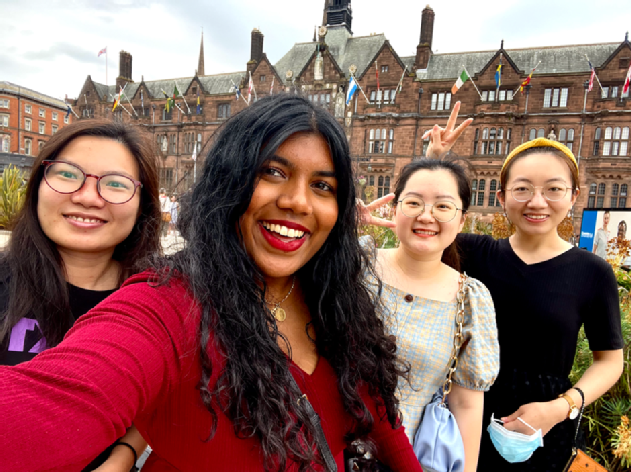
Hi everyone! I hope you are all well. I would like to share of my personal experience before and during my time at WMG.
What initially got me hooked onto WMG was the amazing reputation they had. I had a lot of friends and family tell me how great and enriching their time at Warwick was; this left me wanting to go in and see it for myself. I also managed to get an offer for the WMG Excellence scholarship which is based on experience and academic achievement; I would highly recommend anyone to apply for it as it can help you as a student financially, you get introduced to a new community of scholarship holders from events and you get acknowledged.
And I am so grateful for saying yes to the once in a lifetime opportunity for I have learnt so much not only about the specialism in Technology Management and also about myself. This experience has helped me with grounding and digging deeper into my likes and passions. Now, I would like to share some top things that I believe personally makes WMG stand out:
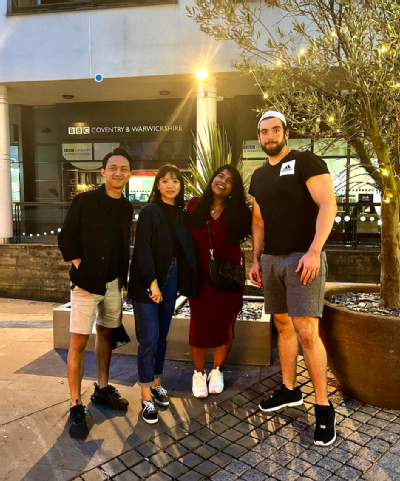
1. Immersive industry insights and practicality
This is one of the biggest factors that I believe stood out for me the whole year of being at WMG. Right from the first day, I experienced an exciting, and action-packed sessions. With numerous industry experts coming in to talk about their industry experience and teaching us key related topics to the module; I was left feeling even more motivated, target-driven and hopeful for the future ahead. This was heightened with the online simulations of scenarios and group works that came with all the module- it truly felt like I stepped into a different world for a week or two every time a module commenced. Despite studying online due to COVID circumstances, the fact that the WMG staff were able to execute a high quality, enriching and immersive learning experience for the students goes to show how exceptional they are.
2. Diversity and building cultural intelligence
One thing I absolutely loved but was also challenged, by was working in groups with most of the students from all over the world from China to USA. In this one year I was able to build on my cultural intelligence and I am so grateful for this journey for opening my eyes to how people from different cultures and walks of life may work. Thus, I have been able to hone in on my communication, emotional intelligence and team-working skills. It has helped me broaden my mindset and truly understand the different styles of working and thinking varying countries embody.
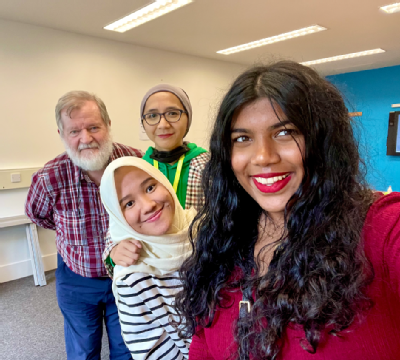
3. Intensity and breadth
Another big skill I was able to hone in on during my year was time management and being disciplined. The structure of studying and assessment is rather different to most universities I feel, particularly from my bachelors. I was studying a taught master’s course, and we had 1 to 2 weeks of taught modules followed by 4 weeks to complete the corresponding post module assignment. Despite being challenging at first, I was able to adapt and was able to work on effectively steering change, adding positive habits like managing time more effectively, being more productive and seeking useful content.
4. The people
Last but not least, I think if it was not for the people at WMG, my experience would not have been the same. Each and every staff, tutor, guide, coach, supervisor, friend who all fell into the same category for me, helped shape my experience for the better. From the first day through my ups and downs they were there; I was able to have hour long discussions on topics of interest to clearing any doubts to having recommendations to connections, to just making my time at WMG unforgettable. I got the sense that the staff here truly cared for their students and their futures; I could tell also from the way they were in contact with alumnis and invite them to share- the stories just added up, it was beautiful. It is the staff alongside students who form the backbone of putting together an masters learning experience which I will forever be grateful for.
I hope you enjoyed my blog and thank you so much for taking time to read. Stay tuned to hear about my experience with my Masters Taught course- MSc International Technology Management. Stay health and well.
Sending lots of love and light.
Lakshika Thuthipavananthan, MSc International Technology Management student
One Day Escapes from Coventry
Sometimes, it can get a little too much. To be in the midst of deadlines, scores, lectures, the urge to do something meaningful and worthwhile, it's all one after the other or at the same time. But solace lies in your reaction to it all, to how you take charge and manage time so you get breaks when you need them. Of course it possible. Most coursework is meant to be done in a way that you get two days for yourself. So this is for those two days, for when you're new to Warwick or Coventry.
To pick the 4 most common, nearby cities that offer a respite for tired eyes, to offer an escape plan, here is a small list.
1. Oxford
Picturesque, historic, serene - if you like quietude, feeling the bygone era, or just taking pictures, Oxford is the place for you. Redcliffe Camera, Bodleian Library, the Museum of Oxford, all these places speak a different language if you listen. I guess what I am saying is that take one of those guided walking tours and see the city, who knows what you will end up seeing or who you might end up meeting.
2. Stratford-upon Avon
A medieval town, the birthplace o Wiliam Shakespeare, this English town has a number of places related to the bard's life. If he has had a presence in your school and college days through plays and sonnets and poems, you will enjoy the common tourist spots such as Shakespeare's birth place, Royal Shakespeare Theatre, Hall's Croft or even the church where he was buried.
3. Leicester
You know how some places are just charming because they are ordinary or are a little bit of everything? That's Leicester for you. St Mary DeCastro, a 12th century church to Leicester Castle everything is just walkable and accessible. If you are the conventional family, the National Space Museum or Abbey Park are really good options to consider if you are with children.
4. Birmingham
This is probably the name you hear the moment you hear about Coventry. Our next door neighbor boasts of more gardens and museums; bigger shopping complexes, and pretty galleries. A few names that you should definitely check out and put on your agenda are the Bullring and Grand Central, Ikon Gallery, the beautiful Library of Birmingham and of course, the botanical gardens.
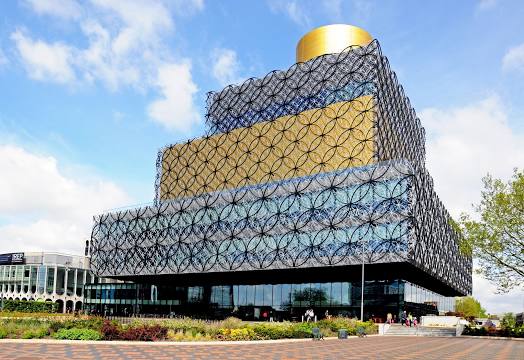
Pick based on your personality, get yourself a ticket from Trainline, and just get going. The city and country has a lot to offer and you are just getting started.
-Kajal Manwani
M.Sc in E-Business Management
Life at the University of Warwick: So Much More than Academics
We are a Russell Group university, it's true. Our courses are as rigorous as they can be. We are pushed to our limits, only to find out that they never existed in the first place. But, that being said, there is nothing that you cannot find at this campus/in your uni life to engage your mind, to get you away from studies or people or overthinking or just anything. Talk about taking breaks, this is what you can choose from:
1. The University Sports and Wellness Hub
Age, aside. Abilities, aside. This place is for everybody. For the swimmers, for the athletes, for the gym heads, for the squash lovers, for the climbers, even. I could go on, but what you should really do is walk into the place and see its magnanimity on your own. Sign up for a sport or two. Might as well let the surroundings give you the motivation that you've been waiting to find.
2. Clubs and Societies
This is overwhelming, seriously. Nothing can prepare you for what's about to unleash in the welcome week. Even more so if you are someone with diverse interests. Culture, music, languages, food, spirituality, academics, careers - these are just broad areas. Each of these areas has a number of societies in it. You just need to shortlist what you really, really want to do during the year. The choices are overwhelming but the societies and their people are not. So don't fret, just take the first step.
Okay breaks apart, the serious stuff is taken care of too. As meticulously as you can imagine. There is support for anything you need. I'll just list two common areas that I had personal experience with.
1. Careers Support:
Everything is done end to end here in terms of guidance offered. Drafting resumes, career talks, mock interviews, mock assessment centers, career fairs - you can get help with anything here. Oh, and this means one-on-one sessions too. If you're not sure what your next step should be, even if that deciding how to begin, there are sessions held for that, too.
2. Well-being Support:
There is too much happening, sometimes. Too many changes, too much to adjust to especially if you're away from home. All of us need support one time or the other. Whether you want one-on-one support on your health and well-being or just general sessions on mindfulness, sleep, this is the place to go to. All details are available on the Wellbeing Support Services website.
Whether it's work, fun, or healthy living, there is an arsenal at your disposal. Ask and you shall receive.
May you have the best.
- Kajal Manwani
M.Sc. in E-Business Management
The M.Sc. in E-Business Management Course: 2 Min Overview
If there is one thing common in all the past students of the eBM course, it is that all of us love it from the bottom of our hearts, whether we studied online or offline. And why wouldn't we? It is one of the best courses at WMG with the highest number of students enrolled and an even higher number of applicants. And the faculty is, dare I say, the best in the department. My opinion is probably biased, yet I'll try to remain as objective as I can while I write this post so you can make an informed decision. However, please do note that everything written here is my personal opinion and may not necessarily reflect the department's or the university's point of view.
First things first, let me define the course content and its suitability:
In a Snapshot:
The M.Sc. gives you a comprehensive overview of the world of digital business. If you're someone who is keen on entering this industry, exploring it from a bird's eye view, this is the ideal choice for you. From information systems and e-commerce to digital marketing and analytics, there are diverse areas that are taught from the basics to give you a flavour of what to expect once you enter the field.
Suitability:
When you see the past cohorts, which I totally recommend doing, you'll see that the batch is a mix of freshers and experienced across different continents. Although I did feel that the course is tailored towards giving students an introduction so it is more suited for 0-2 years of experience.
Vibe:
You're overall experience of the course is going to be that it's fast-paced and intense. You'll feel like you've covered topics that could be taught is a week in one single day. This is one of the highlights of this course and its strength because you cover a lot of breadth in the span of one year.
The X Factor:
The ideal balance between theoretical concepts and practical assignments is almost perfect in this course. In fact, I have probably researched digital business courses across countries - US, Canada, France, Italy, Ireland, The Netherlands, and the UK. This is by far one of the most practical courses I have come across. Every module has a practical exercise that uses a digital tool. The eBM team is the X factor too - all the tutors go out of their way to help you excel at the course. This is almost too good to be true.
Sage Advice:
If you decide to take this up, I'd advice that choosing the right specialism is really important. Your overall experience and the dissertation depend on this. So make sure you talk to all the specialism leads and alumni before making a decision.
Lastly, I hope you have noticed already that this post tries to touch on aspects that have not been covered on the official course information page. This just my way of sharing advice I wish I had when I began. If you're looking for facts and information, this would be the right place.
Godspeed,
Kajal Manwani
M.Sc in E-Business Management
TOP 5 TIPS TO MAKING THE MOST AT WMG

Hi everybody. I hope you are all doing well.
It is amazing how fast a year can go when you are making the most of your time here. I thought I would share some of my tips which may benefit you, from my time here.
1. SELF-REFLECTION
The power of self-awareness is something that has helped me reflect, unpick, learn and develop myself during my time here. Sometimes, we go through the days without much thought to why you continue certain habits or chain of thought etc. so really digging deeper into my actions and interactions with day to day life has helped me change when necessary and improve myself. I think journaling has been a game changer and an amazing tool that can help you self-reflect and grow as an individual. Picking a good time to consistently or at least every other day journal your thoughts as much as you can is important; to see why you are doing what you are doing, expressing gratitude and brainstorming how you can improve. One of my tutors at WMG, taught me practicing mindfulness and taking some time to yourself to meditate thus being in the present can really set the tone for the day and ever since I’ve noticed a big difference. Not only is it important to take care of your physical health, but mental health is equally as important- so incorporating mind enriching activities has really helped.
2. NETWORK & BE INVOLVED
WMG is a perfect hub of numerous opportunities and enriching connections, almost like the synapses in our body being ignited with more and more you immerse yourself in the environment. The more you are involved with the university, students, modules and staff, the more enthralling the experience is. I highly recommend also joining a society or several societies whether that be volunteering, sports or academic societies; there’s bound to be something that’ll catch your interest. Try something new and the connections that stem from that are beautiful. There are also numerous events that take place in these societies, so I highly recommend this. It’s a particularly nice way to find that balance with studying and retaining information from the masters. You may even find study buddies along the way, if that may pique your interest. Don't forget to enjoy the journey and have fun on the way.
3. TIME MANAGEMENT & BALANCE
Balance is so important- managing your personal life and study life. I think creating a to do list every night before and creating timetable has tremendously helped in managing time. I make sure to take adequate break times where I would be away from the screen- so going for a walk or cooking something for example really helped with clearing my mind and recharging. Another thing that has helped me amidst the studying, assignments and modules, has been spending time in nature- whether that be go for a walk or do some yoga. I have also found exercising has tremendously improved my health both mentally and physically whilst doing my masters. I have taken up doing boxing, HIIT workouts, wall climbing, and Yoga and have felt healthier and feel my concentration whilst studying has improved.
4. EXPLORE-STEP OUT OF YOUR COMFORT ZONES
Do something that scares you or something that you want to try but have been putting aback. The more risks you take the more opportunities you will be able to live and grow alongside. For me public speaking was one of my biggest fears and still pretty much is. But the more and more I pushed myself during the modules, in presenting to the class the more comfortable I became. Then I realised it is all okay and will be okay. Once we start to believe in ourselves, the world is yours pretty much. You shape your future. I am from London and exploring the midlands has been great which I will share in the oncoming blogs. If you are new to Coventry or the country I'd also recommend to explore as much of the surroundings as you can- there's so much beauty in the surroundings whether that be museums, nature trips, diverse cuisines, adventurous sports etc there's something for everyone.
5. MAKE USE OF ALL THE RESOURCES
From the lecturers, staff, students, online resources, careers service, to the library – there are plenty of resources and people you can go to for any help you need. So, don’t be afraid- there is no such thing as a stupid question. The more you seek help or discuss with others, much to your surprise you might be able to learn invaluable things that you can take for life. For example, during my time here I wouldn’t have discovered my deep passion for climate change mitigation if it wasn’t for the connections that connected me to others who had expertise in this field. The more you invest yourself in making the most of the invaluable resources at hand the more personal growth you may experience and potentially even find a future career aligned to your passion, purpose and desires.
You are what you put your time and energy into. The more you invest yourself in the masters programme and WMG life the more rewarding the experience will feel for you. Immerse yourself. I am grateful for this journey and look forward to keeping you updated with more posts.
Thank you so much for reading my blog. Keep dreaming and achieving. A journey of a thousand miles starts with one step.
Sending lots of love and light.
Lakshika Thuthipavananthan, MSc International Technology Management Student
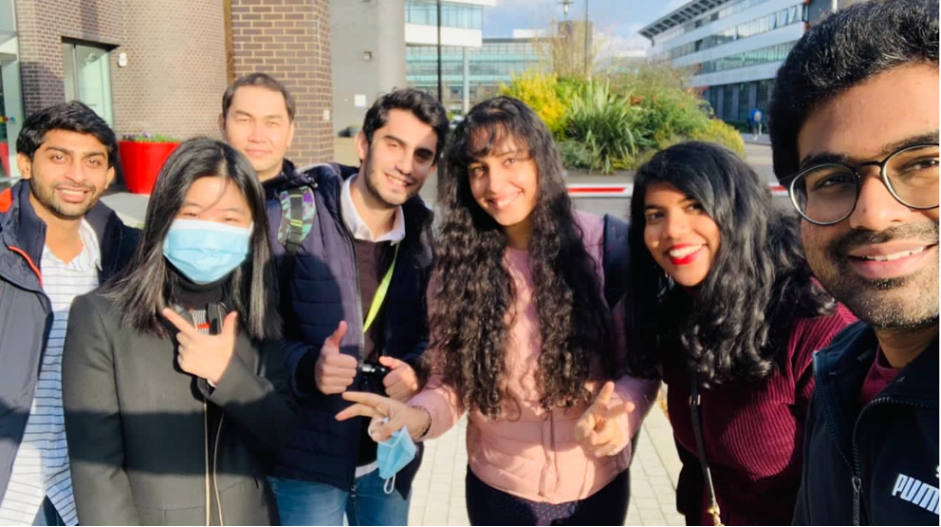
A year in an online utopia

Hi everyone, my name is Lakshika and I am a Masters International Technology Management student. I am super excited to start my blog and share my experiences with you. Wow has time flown by and I can’t wait to share you my journey so far. I have now completed all my modules, post module assignments and have the last hurdle- my dissertation to go- all online.
It is nearing the end of my time here at Warwick and wow has it been a rollercoaster of a ride, not an easy road for me with COVID-19 circumstances, jump from Bachelors and balancing personal life, but it has been such a worthwhile and rewarding investment of a year which I am super proud, and grateful for. I have absolutely loved my experience and time here at Warwick and am proud of my courage, connections shared, knowledge gained, skills developed, persistence and endless growth here.
I know what you might be thinking. How did you manage a whole year of studies online? I too myself was apprehensive at first but the warming and supporting staff and students at WMG made my time unforgettable. I remember being taken aback by how immersive and inspiring the first module was and then I knew this year is going to get exciting despite being on MS Teams. With each module, I felt like I was immersed in another world with industry experts bringing motivation and inspiration with thought-provoking insights, to providing enthralling group work exercises to providing enriching insights from the lecturers themselves. One big thing that I have taken away from this journey is that our mindset and attitude towards the masters determines pretty much everything. Mindset followed by action is everything you need. Having a can-do attitude and really throwing myself into the modules and university life has made my time here unforgettable. If there are doubts ask them, if there are any discussion or disagreements you may have the more you talk with the different people, the more you can learn valuably from the different perspectives out there. From your personal tutor, to dissertation supervisor to the lecturers to the students, there’s endless opportunities to enrich yourself with beautiful minds all around.
I believe starting with why you are here and why you are doing what you are doing can help pave the way for the attitude you can be there for. I came in looking to learn new insights and develop on skills such as critical thinking, design thinking, problem-solving and communication skills; and I found the more I let my curiosity lead me, the more I learnt and developed myself as a person and achieving my goals.
Despite the whole year being online, I have managed to make the most of my time here and it wouldn’t be without all the immense support from the staff here at WMG and creating such meaningful and inspiring sessions for the students. On that note thank you to everyone involved in creating this amazing experience for me at WMG. I hope you take away a great and enriching experience in your journey here. Believe you can and you're already half way there.
Thank you so much for reading and stay tuned for some more insights into my masters journey here at WMG.
Sending lots of love and light.
Lakshika Thuthipavananthan, MSc International Technology Management student
Learning Experience at WMG e-BM - Courses
The first course I took with peers from all other specialisms is e-Business Fundamental. It covered basic concepts about e-commerce. There were one or two technical courses that were hard for me to understand, but luckily the assessment did not require me to understand all of them as a beginner. One of the purposes of the In-Module Assignment (IMA) was to allow everyone to adapt to and learn how to do reference and in-text citation in academic English writing.
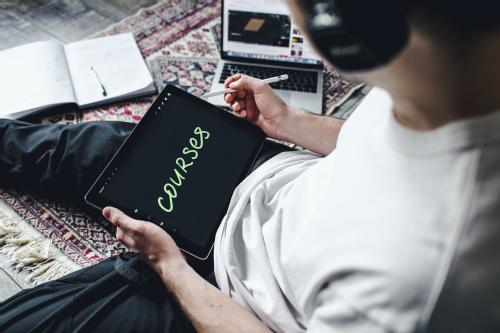
In terms of the Post Module Assignment (PMA) essay, it is always in the form of consulting report, requiring raising hypotheses of the scenario, stating the company’s existing problems, analysing the problems, and proposing and justifying solutions, and so on. Most of PMAs are in this mode, but sometimes it is not the case, depending on the theme.

The second course I took was Enterprise E-Commerce Solution. This course was very tight but very interesting. The lectures talked about the various solutions that the company needs when entering the e-commerce field, such as content management system (CMS) - used to build a website, and customer relationship management (CRM) – used to manage the relationship with customers and so on. Our IMA group assignment was to build an e-commerce website with WordPress (an open-source content management system) within a week. Actually, it is four to five days because we had a presentation on Friday. It sounds interesting, isn’t it?

By the way, before building a website, there is an IMA to build a case which was to prepare the website building so that everyone is familiar with various systems, website hosting and other concepts.
The last course I wish to share is Digital Marketing System and Technique. From the WMG website, I notice that it has been removed from the eCommerce specialism this year, but students in Digital Marketing Specialism will be cover similar courses. Both IMA and PMA require to create a Multichannel Marketing Campaign for a certain product of an enterprise. Various websites were used to obtain data, analyze keywords, competitor traffic, and channels which I always find funny. 😊😊
Jun Zeng | e-Business Management
Planning your Monthly Budget at University
The moment I had decided that the University of Warwick was going to be my future destination, my next task was to decide how my life was going to be while at uni. If you're an incoming student, you're probably in the same place as I was. I am from India and had never been out of the country before so you can imagine how overwhelming everything was for me. Where to live, how to travel, how to plan my budget. No, honestly, I didn't even know how much money I would need for the whole year. And because I wished I had help budgeting back then, I hope this one helps you plan your expenses.
Just like any other source, I'll divide this blog post into the main heads - rent and bills, food/groceries, commute, and leisure. So here goes:
1. Rent and bills: I'll put this first because this is the biggest chunk you'd want to set aside other than your tuition fees. Also because this varies so much from one to the other. And because you have to be really careful here otherwise this category will eat up majority of your budget. So ideally, you'd first have to decide whether you want to live alone or in a shared apartment. If you want to go for a shared apartment, how many people do you want to share with. Both have their pros and cons, but in terms of monthly expenses, living alone could cost you up to 600 a month, including bills. But if you're okay with sharing the kitchen and living room space, you could bring this down to anywhere between 350 and 500, depending on how many people you want to share with, locality, or even on or off campus. Please do look at Spare Room, Right Move, and of course, the Warwick Uni accommodation for options even at the budget planning stage.
2. Food and Groceries: Okay so this is your big chunk of expenditure, although very small compared to rent and bills. Here your primary consideration is whether you cook food or not. The more from-the-scratch your cooking is, the more you save. For instance, a meal for one you order home can cost you anywhere between 7 and 12 pounds excluding delivery charges; 5 if you are very frugal. On the other hand, cooking at home will cost you anywhere between 20 and 35 per week. Or even 15 if you are very careful about where you shop and how much.
3. Commuting: This is where your choice of accommodation plays a big part. You're better off staying at campus or at walking distance because commuting is not cheap in the UK. A day pass that allows you unlimited journeys on the West Midlands bus costs about 4, a monthly pass costs about 60. Take a look at the West Midlands Bus Service website for details. You could spend about 60-80 and get yourself a second hand bicycle to get around the city. Cheap and easy.
4. Leisure: Because this category is way too diverse to account for, I'll just add in approximations and sources to refer so you can see how you want to calculate this. If you're a traveler, you are probably better off using the train service. Check Trainline.com to see how much a trip to London or Oxford or Bath could cost you. Do account for buying a rail card that saves you one third of the fares because you are a student, costs 30 for the whole year. An evening out with friends drinking and eating could cost you anywhere between 15 and 45. Your monthly expenditure on your phone bills will be 10 minimum, higher if you want international calling and more mobile data.
That's all then. Hope this helps. Just remember that everything you'll want to buy here is available online, that means you can look at prices, store options, and availability to aid your planning process. And for everything else, there are groups of incoming students on Facebook, WeChat, WhatsApp to help you out.
As always, Good Luck.
- Kajal
M.Sc, in E-Business Management






